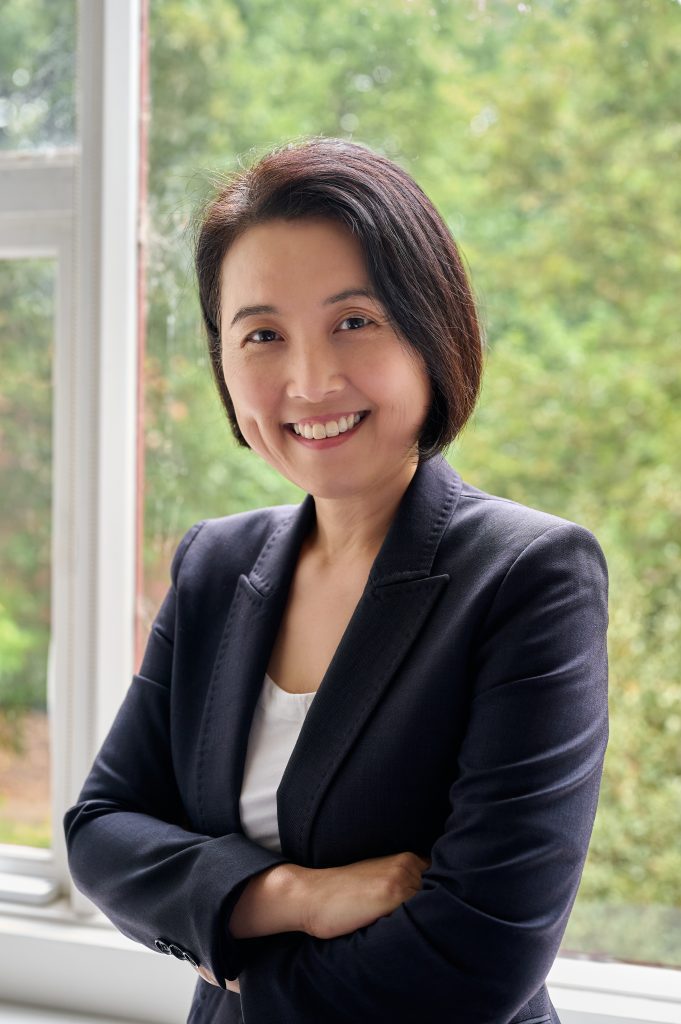PD Fest 2025
The Shifting Landscape
Face-to-Face Event – Saturday, 11 October 2025
Access all content at UECA Online
You can access videos and download presentation materials from UECA Online.
Many of us wondered towards the end of the COVID era just how quickly things would return to ‘normal’ in the ELICOS sector. However, what has transpired in the 2+ years since borders reopened has proven Heraclitus’ timeless adage that no one ‘ever steps in the same river twice’. Indeed, change has been visited on our sector on a scale that we could never have expected, banishing any thoughts of ‘going back’ to pre-COVID conditions.
Some of this change appears to be closely related to the pandemic experience. The students we see in our classrooms now are more tech-savvy (or tech dependent?) than ever, but have their levels of engagement and even social skills been impacted? Teachers, too, have upskilled considerably, and their needs and abilities have evolved accordingly.
Other changes seem more independent. The explosion of generative artificial intelligence has brought a wealth of opportunities, but has also caused concern, particularly in relation to academic integrity. And just as recovery in international education in Australia appeared to be well underway, the policy landscape shifted in a way few could have anticipated, affecting the mix of students we receive.
Despite these shifts, hope certainly remains for the future of ELICOS, with our history of overcoming similar challenges through ingenuity, adaptation, and collaboration. As the landscape continues to evolve, how can we as educators ensure that we’re addressing the needs of our students, ensuring integrity in our courses, and supporting our staff?
Date: Saturday, 11 October 2025
Time: 9:15am – 4:00pm
Location:
Hawthorn-Melbourne
Level 1, 333 Exhibition Street
Melbourne 3000


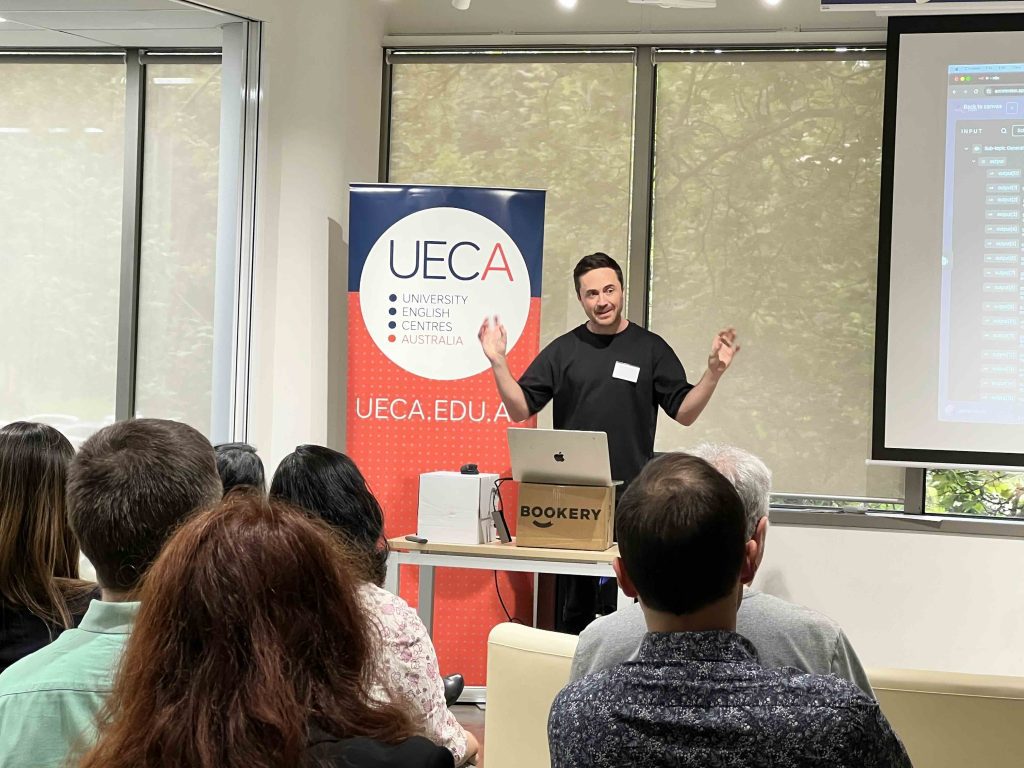
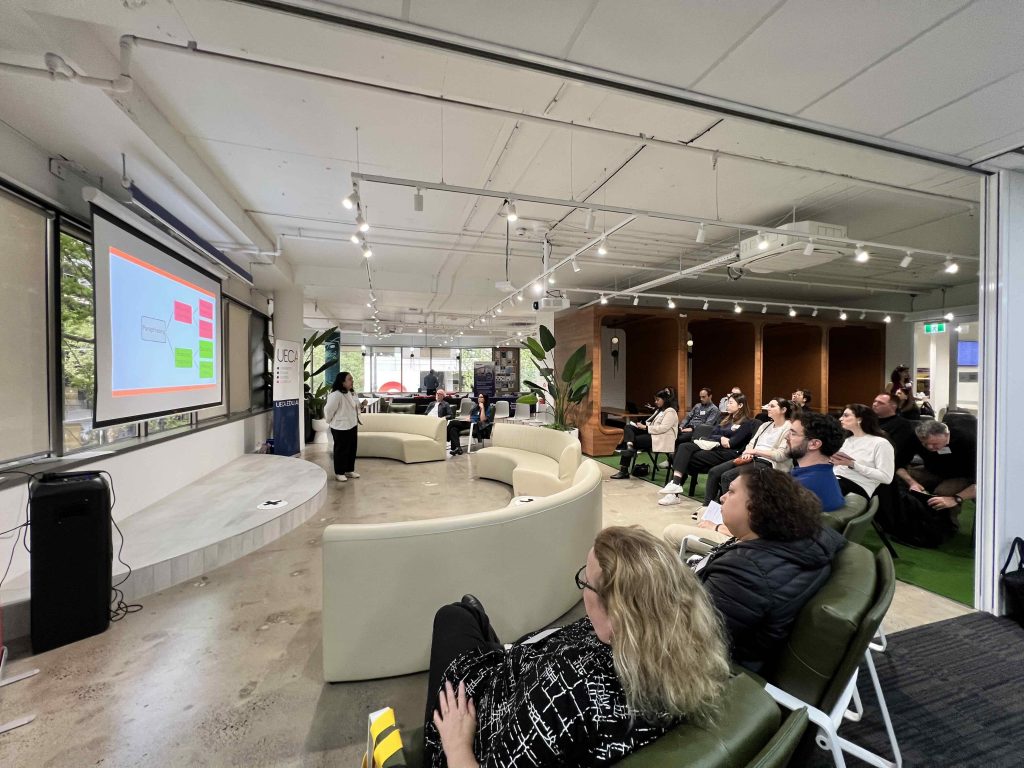
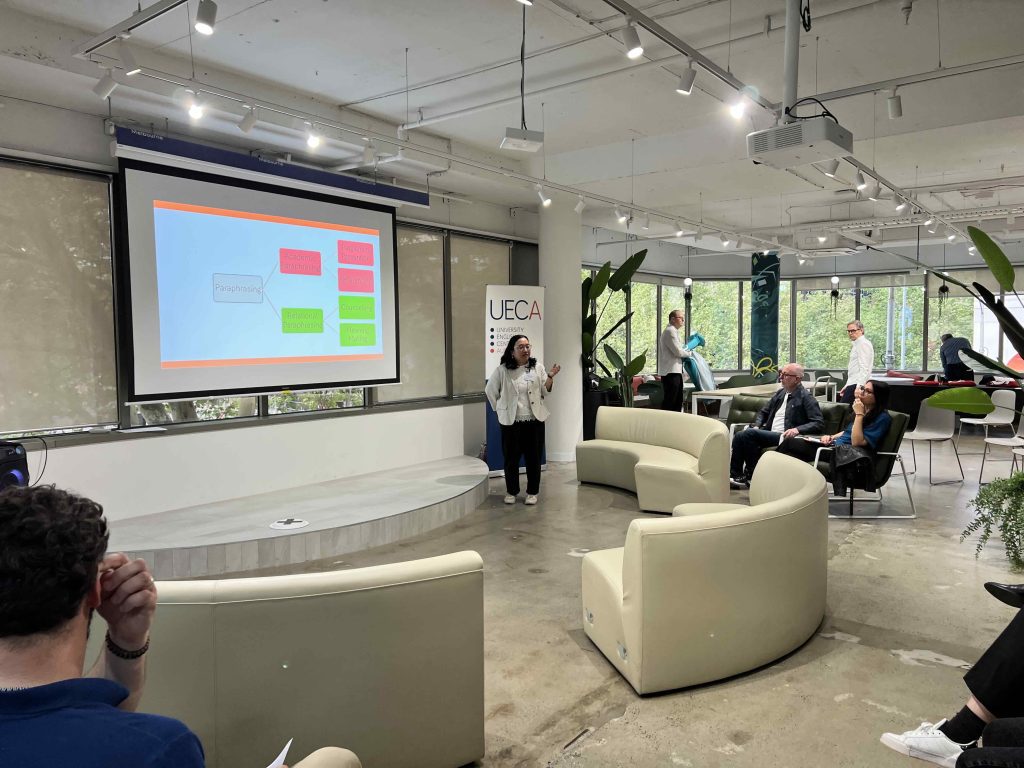
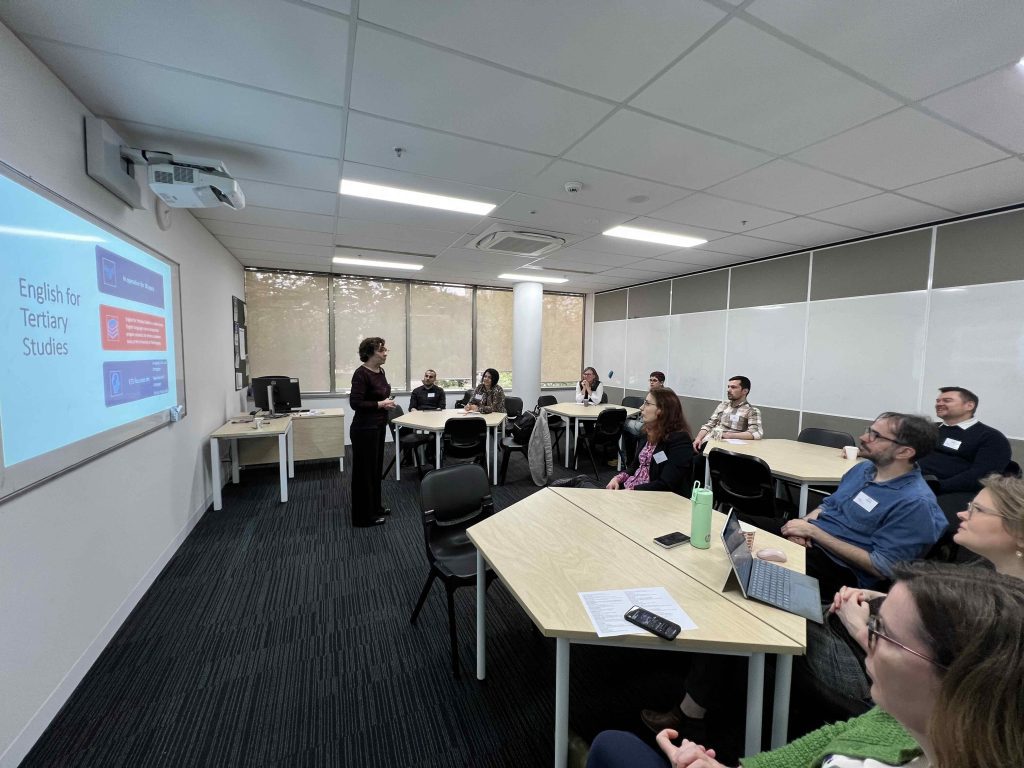
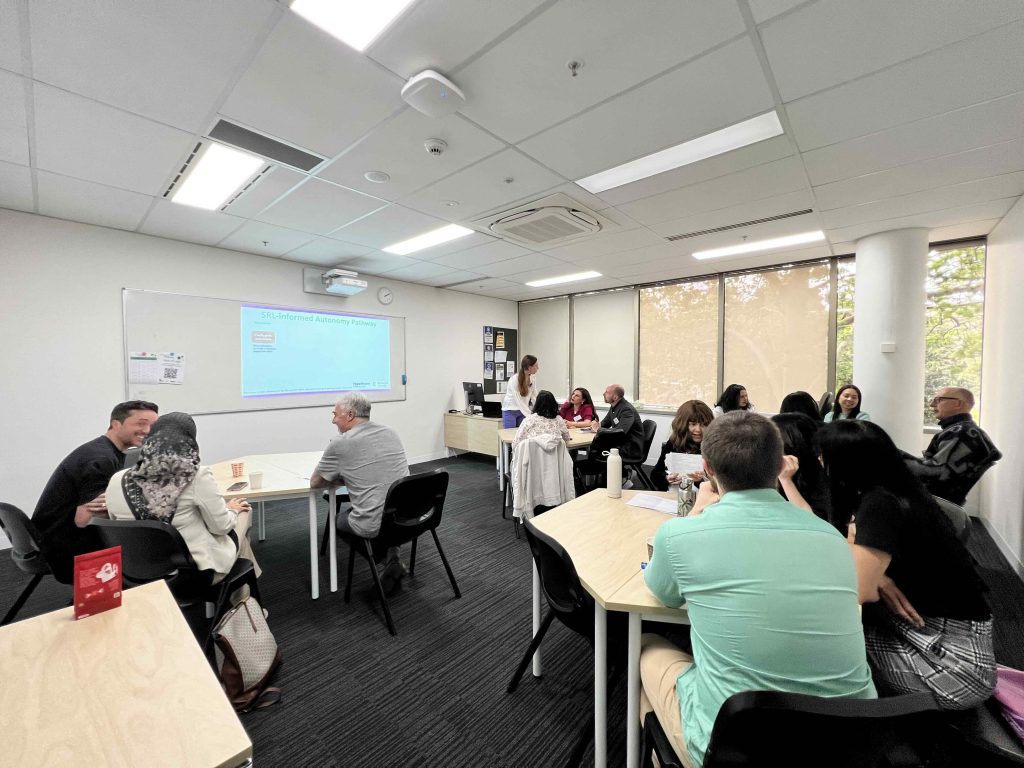
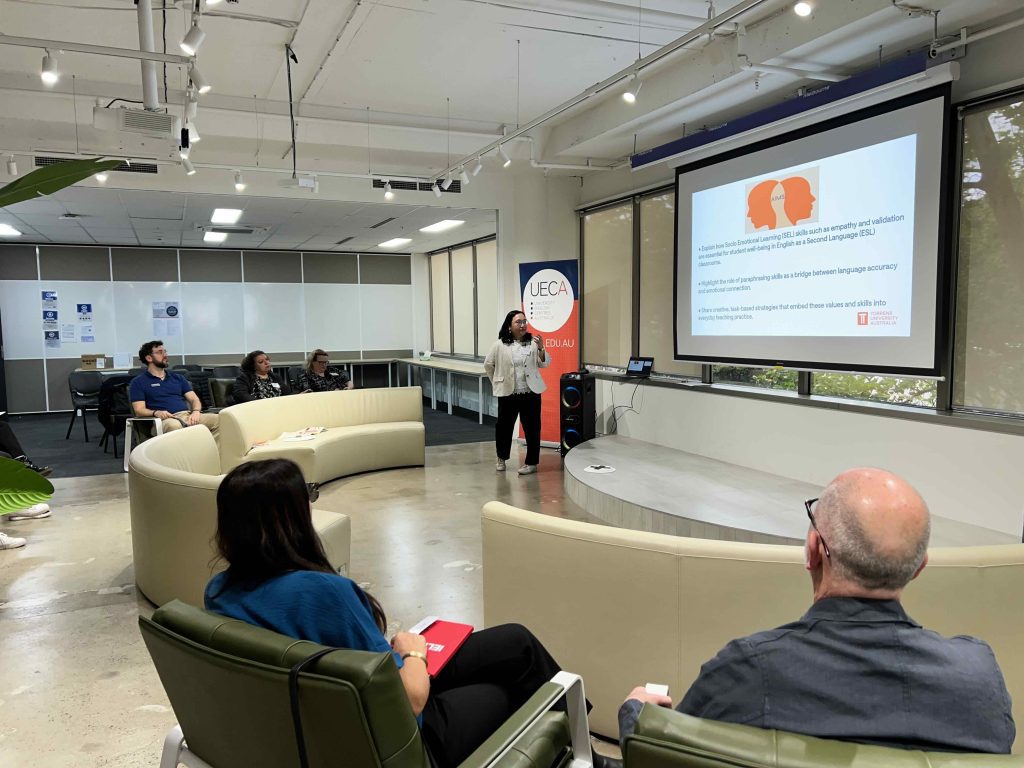
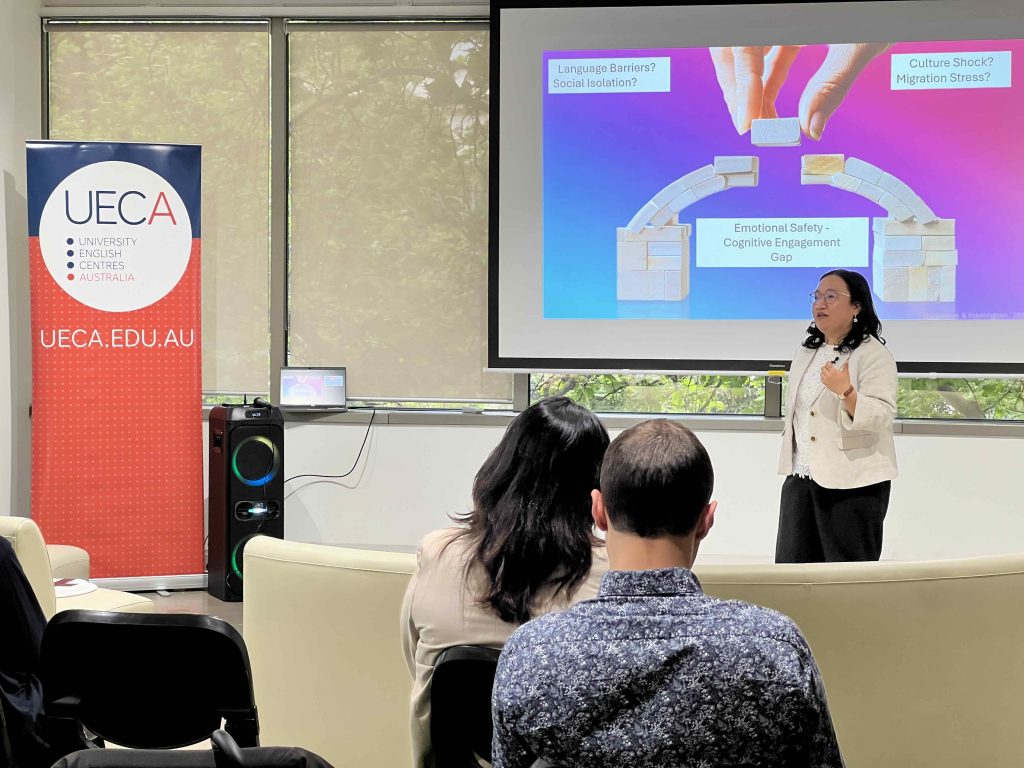
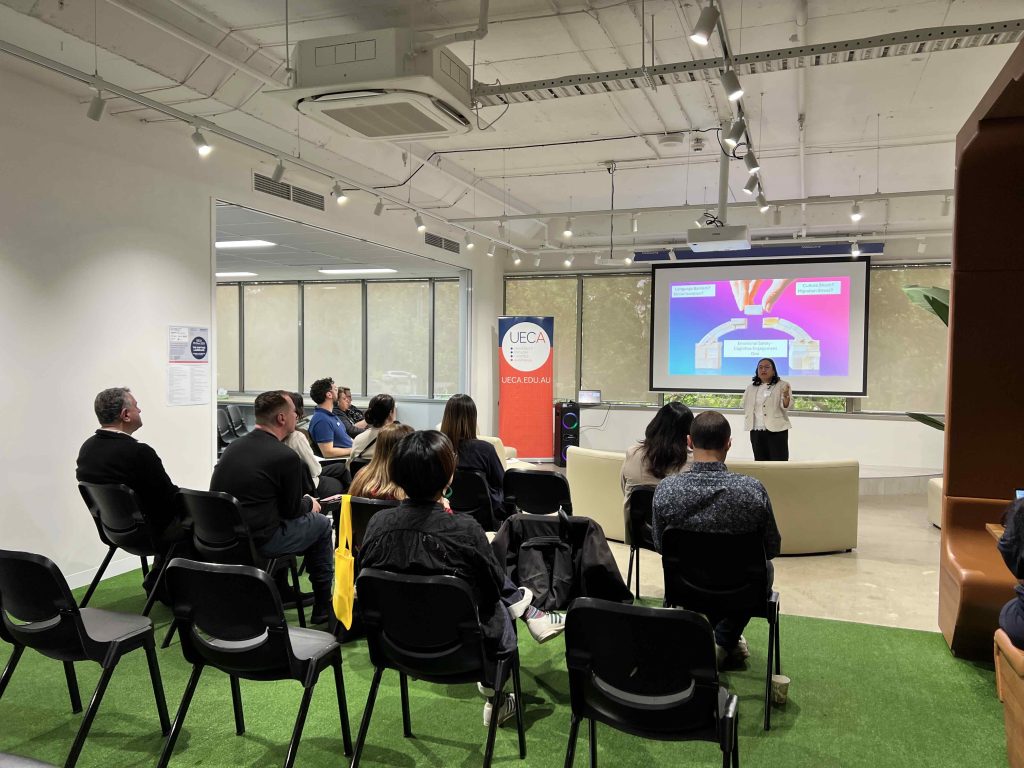
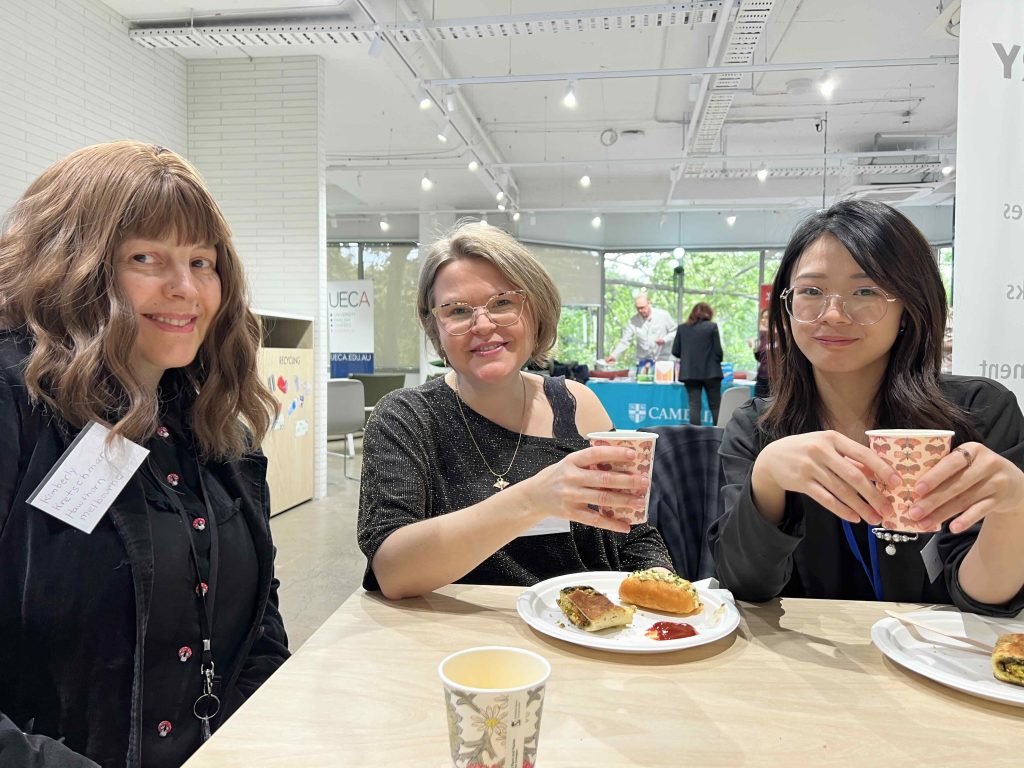
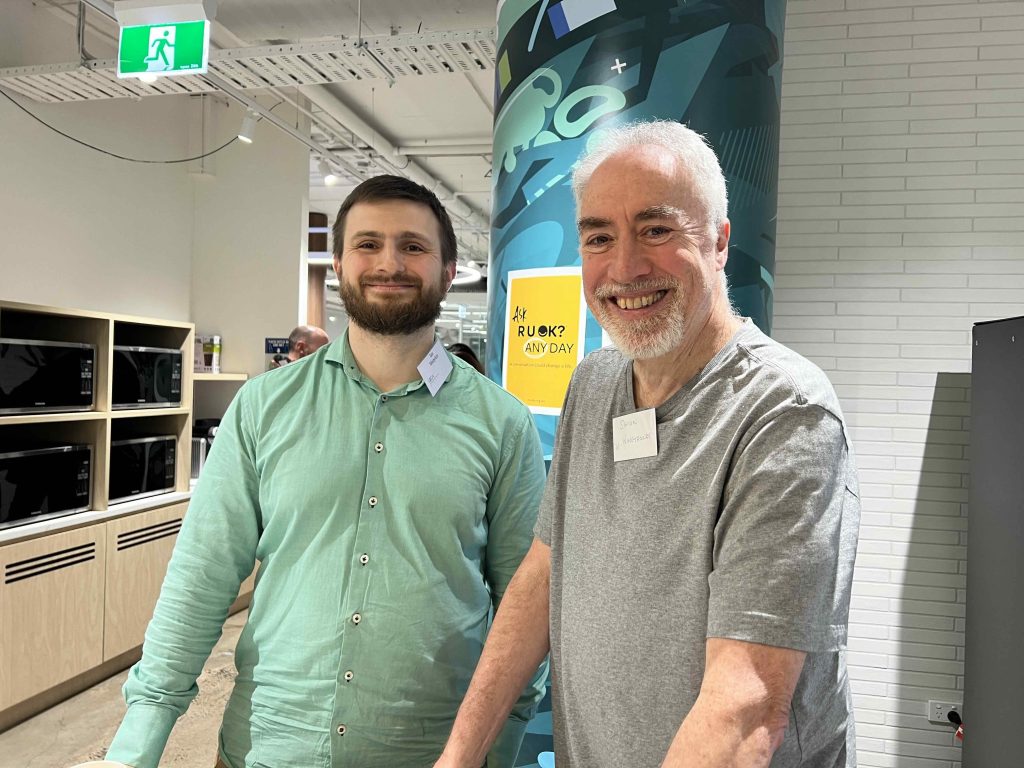
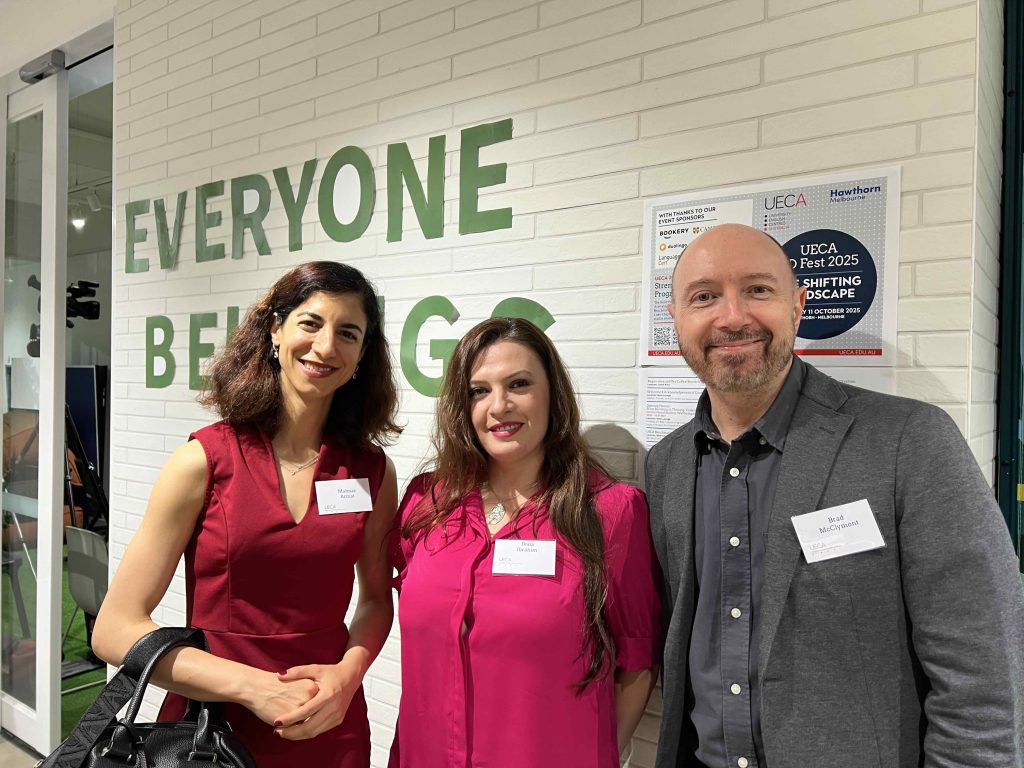
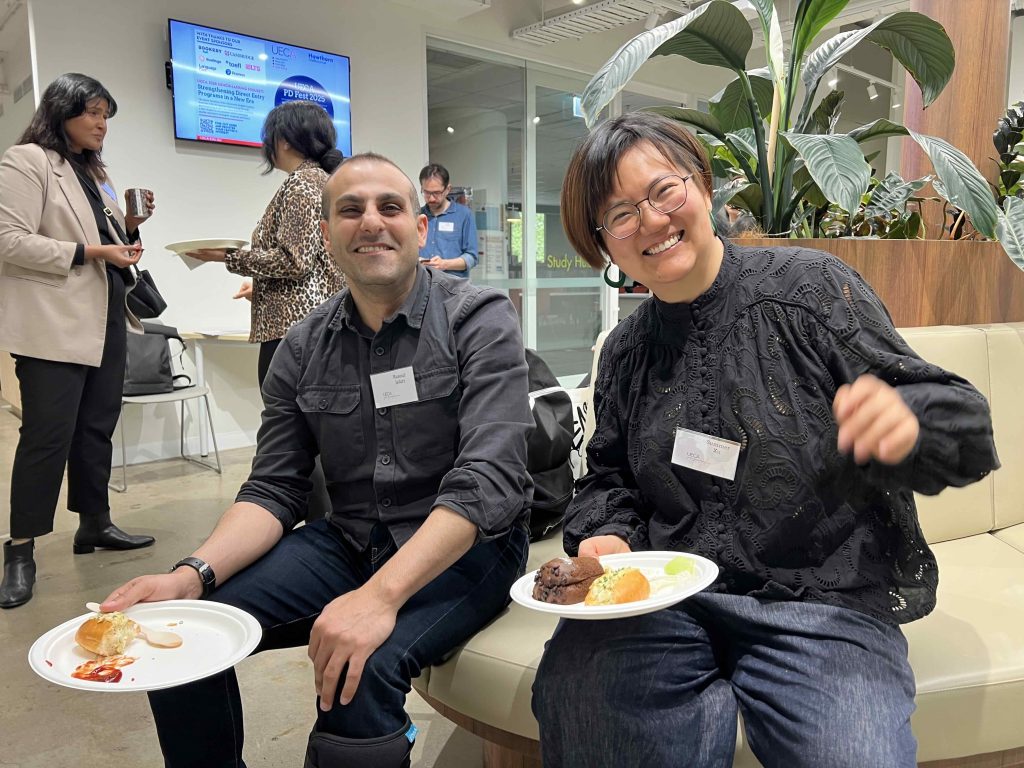
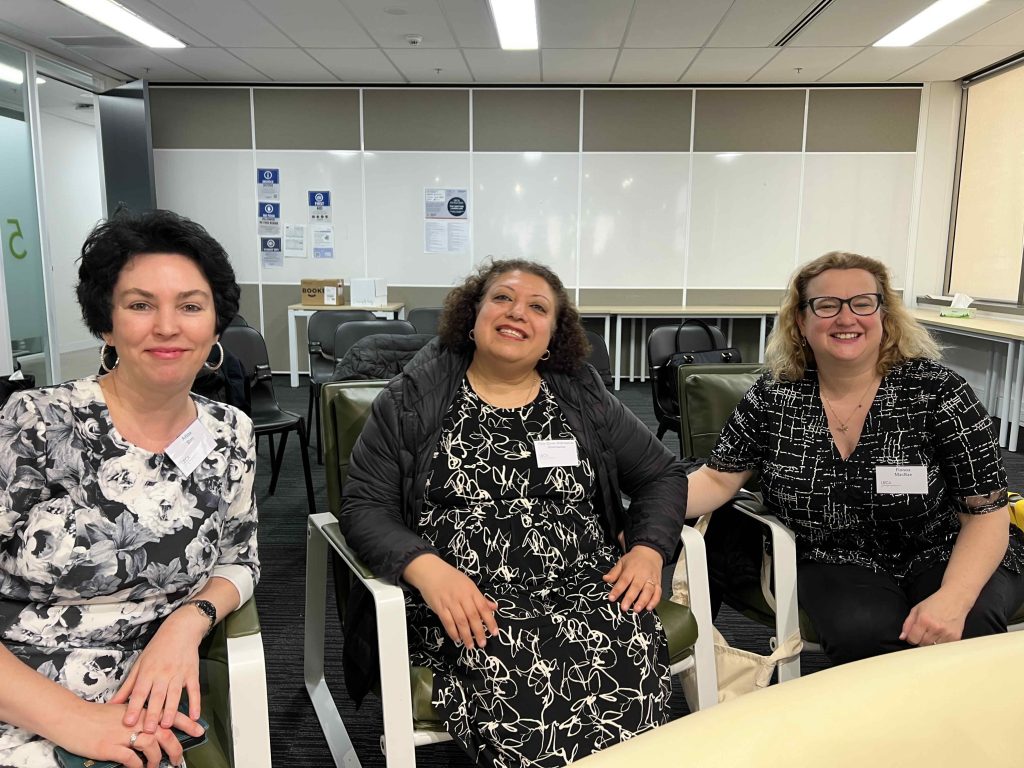
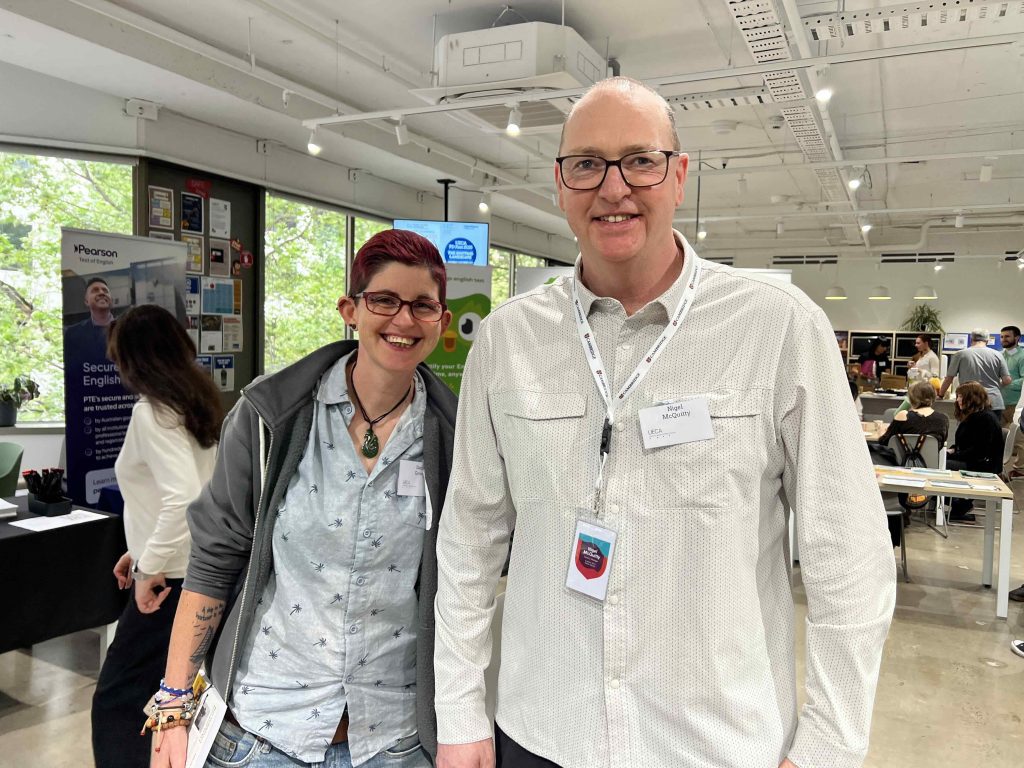
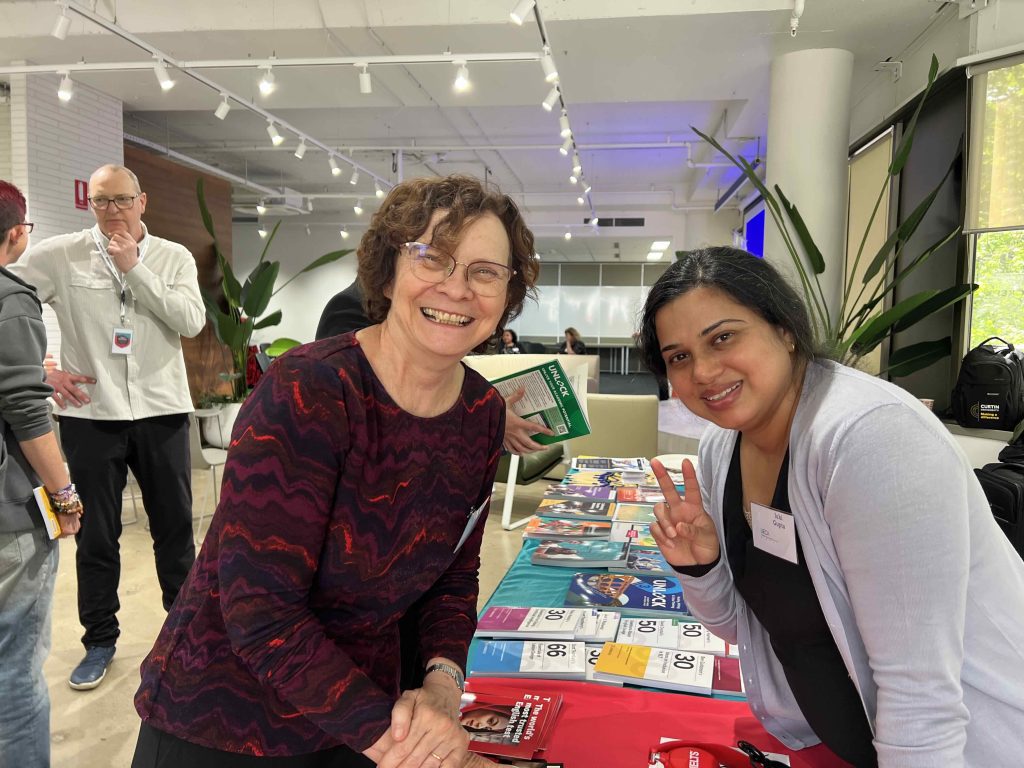
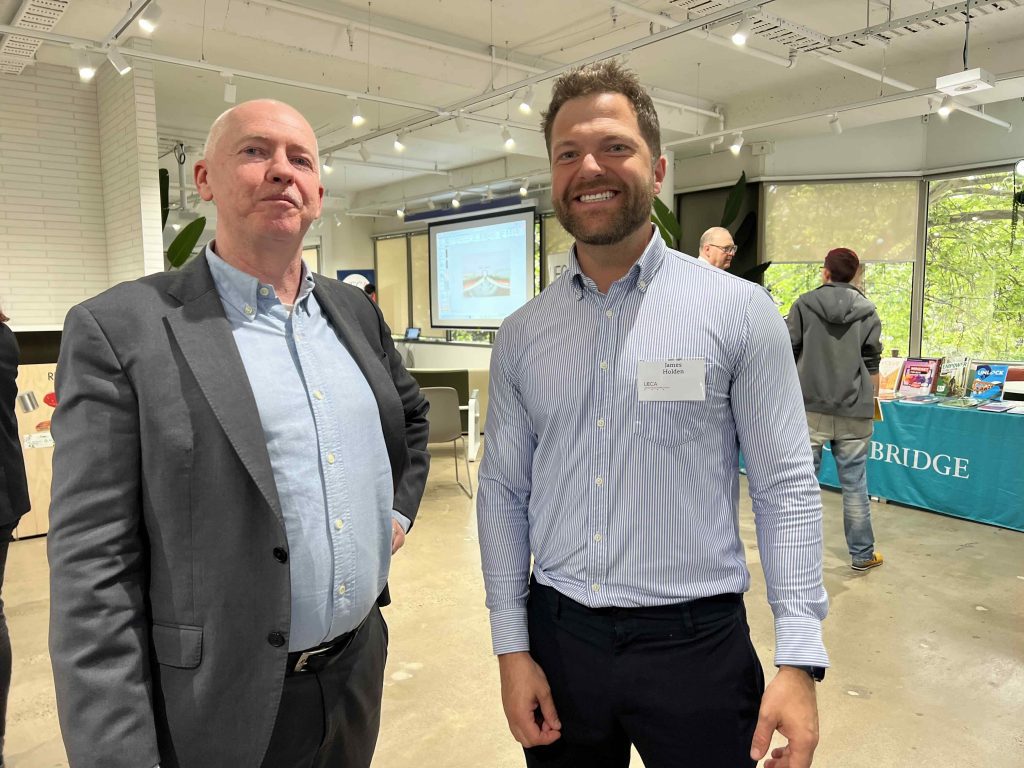
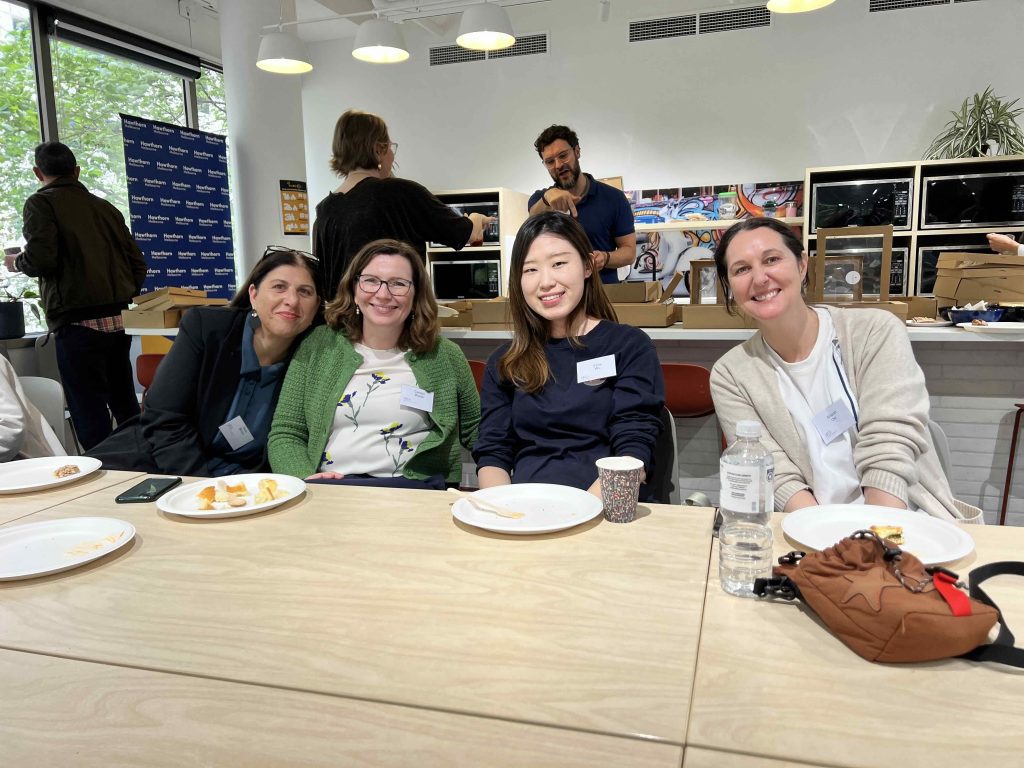
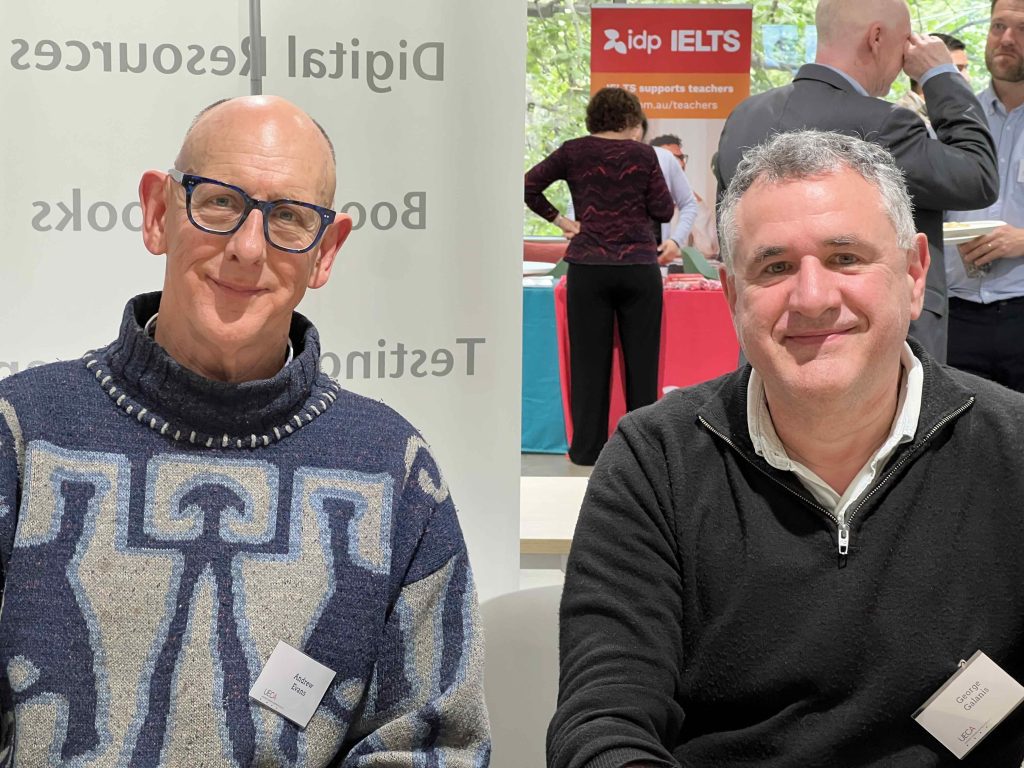
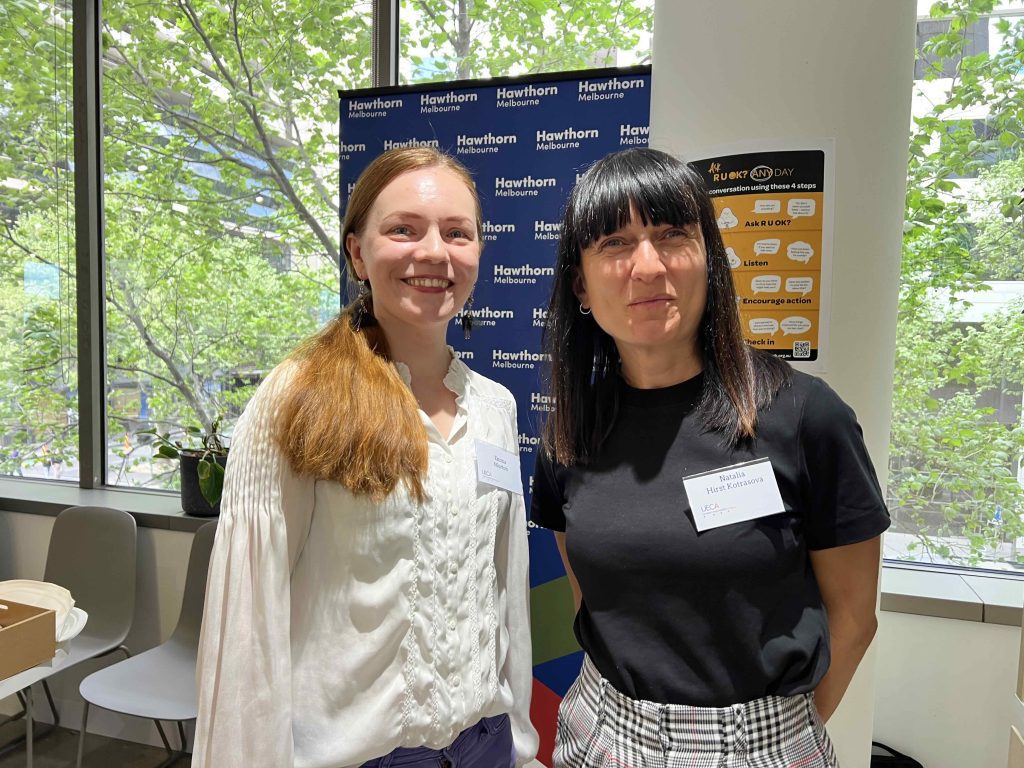
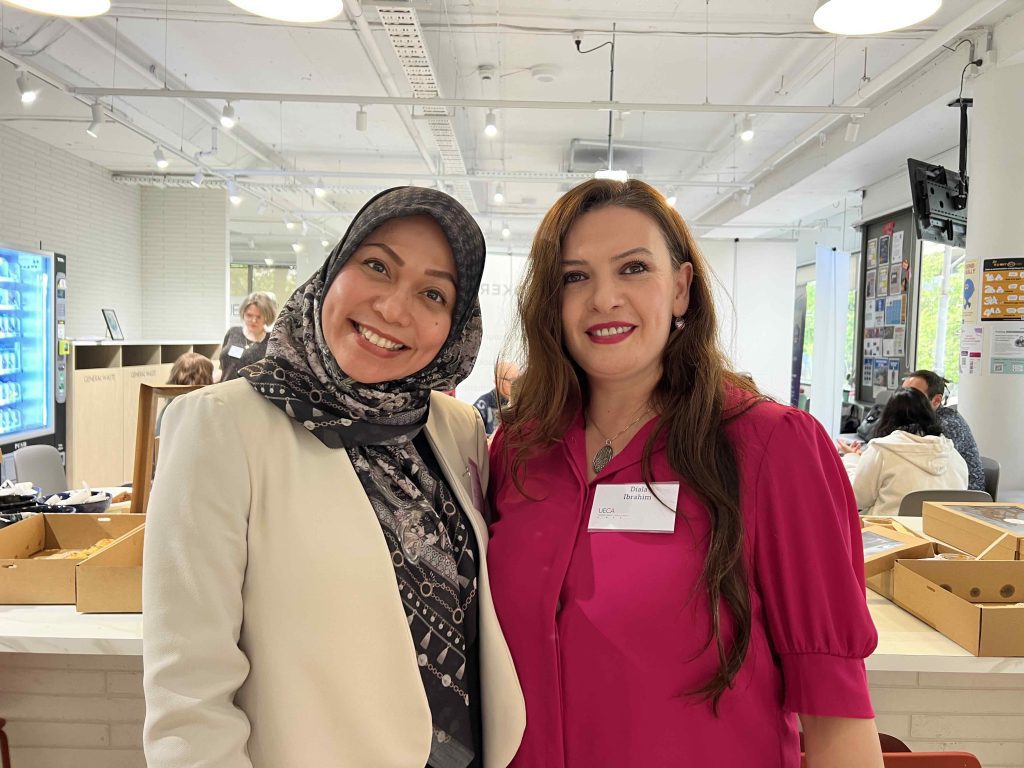
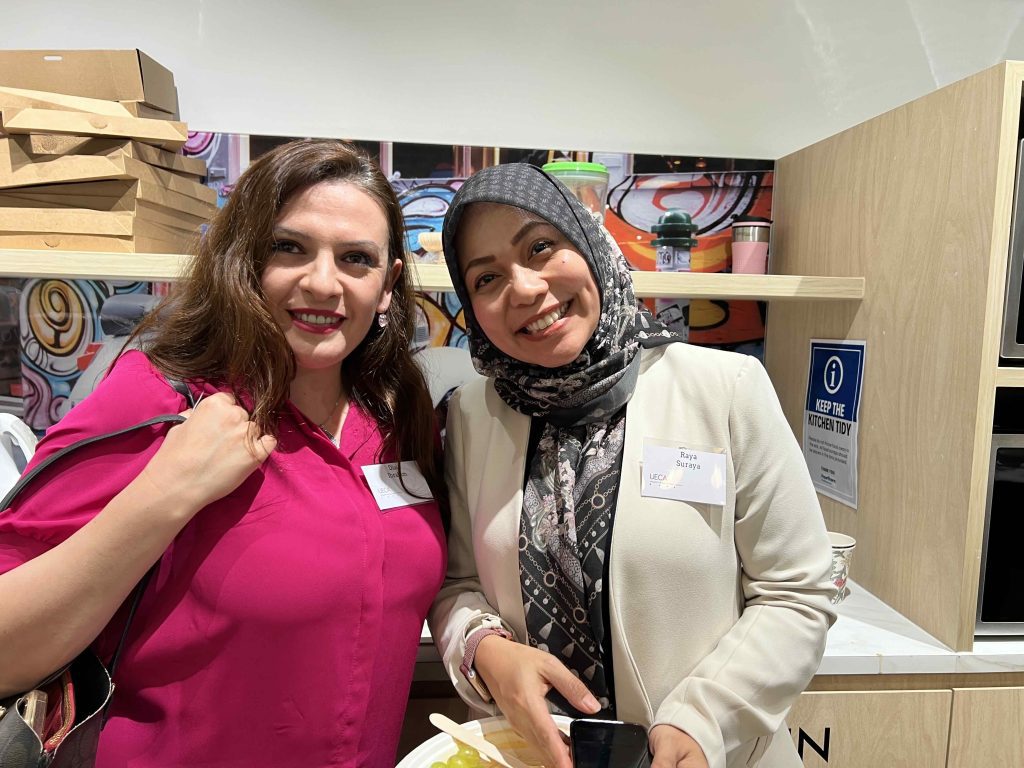
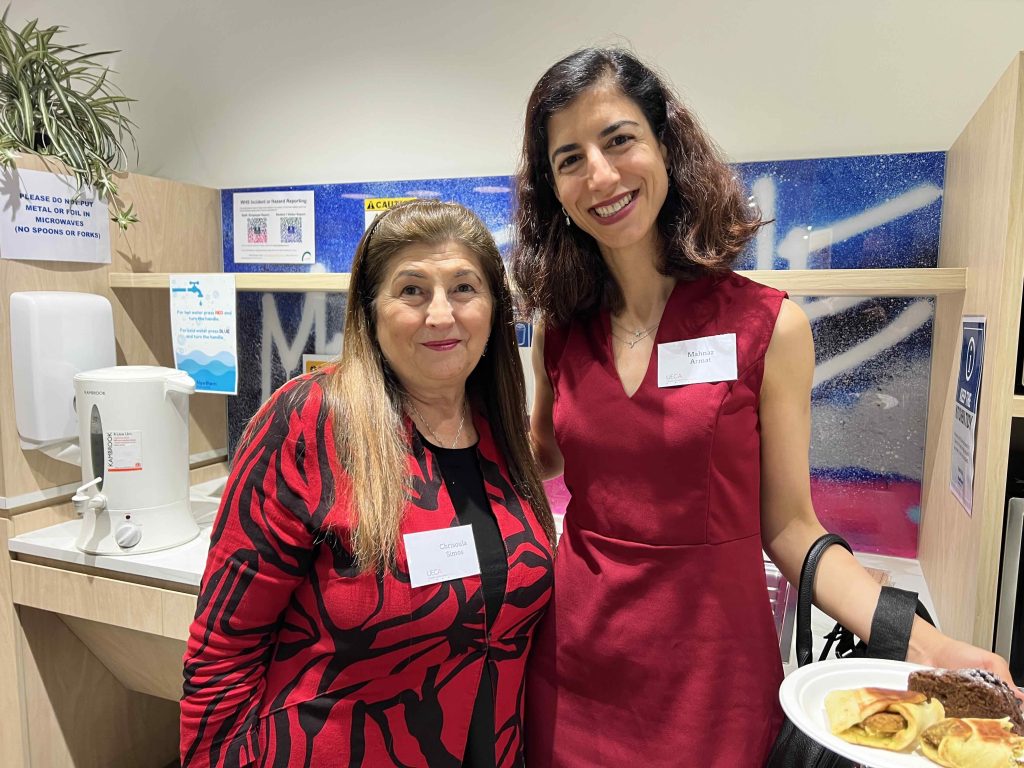
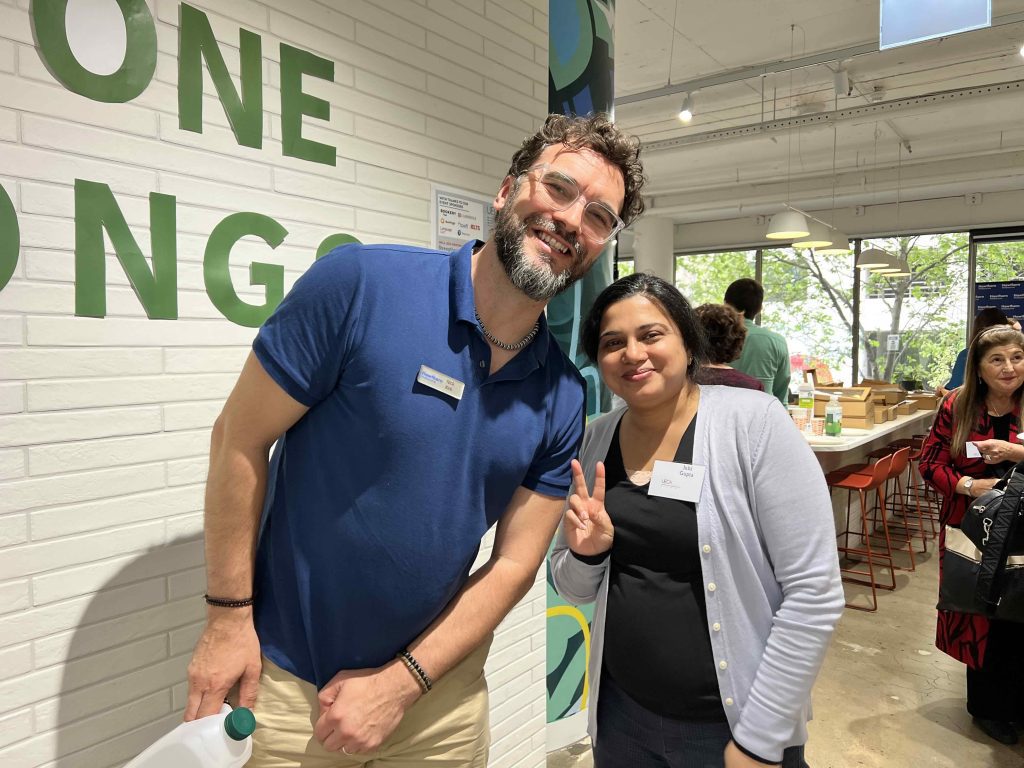
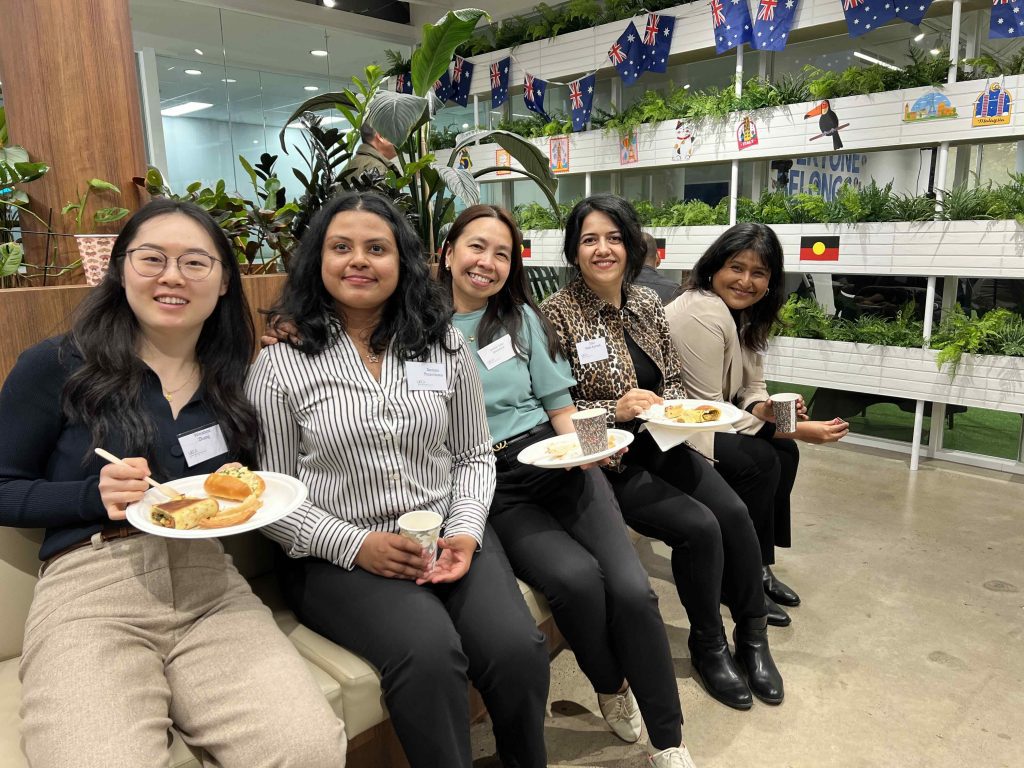
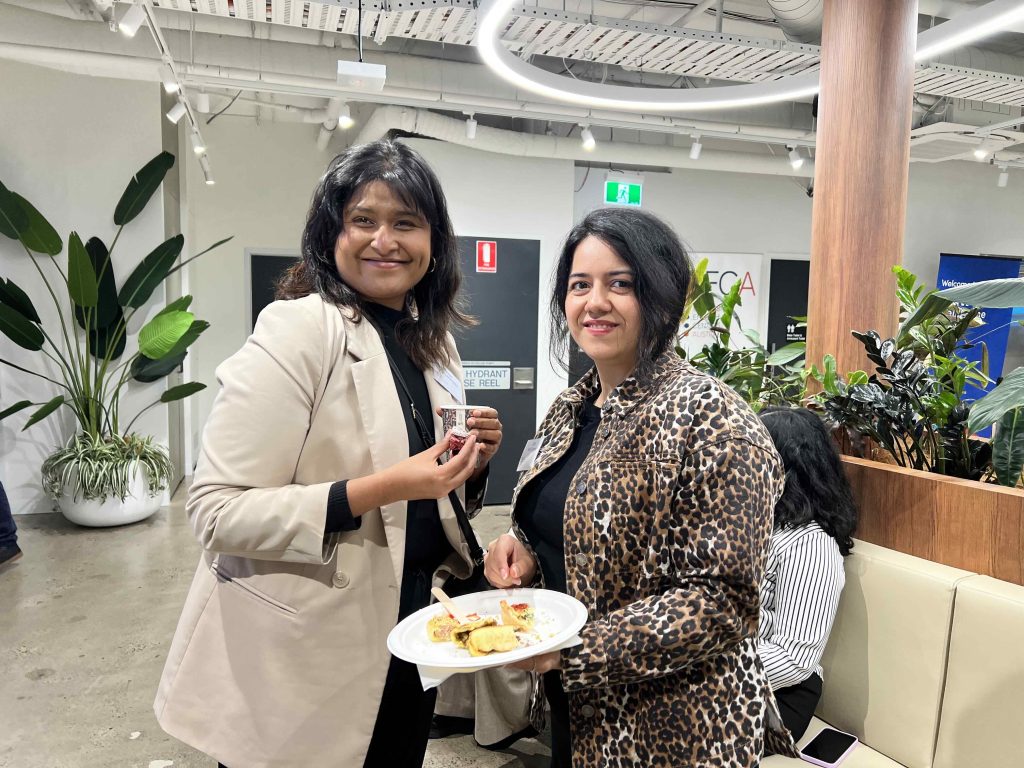
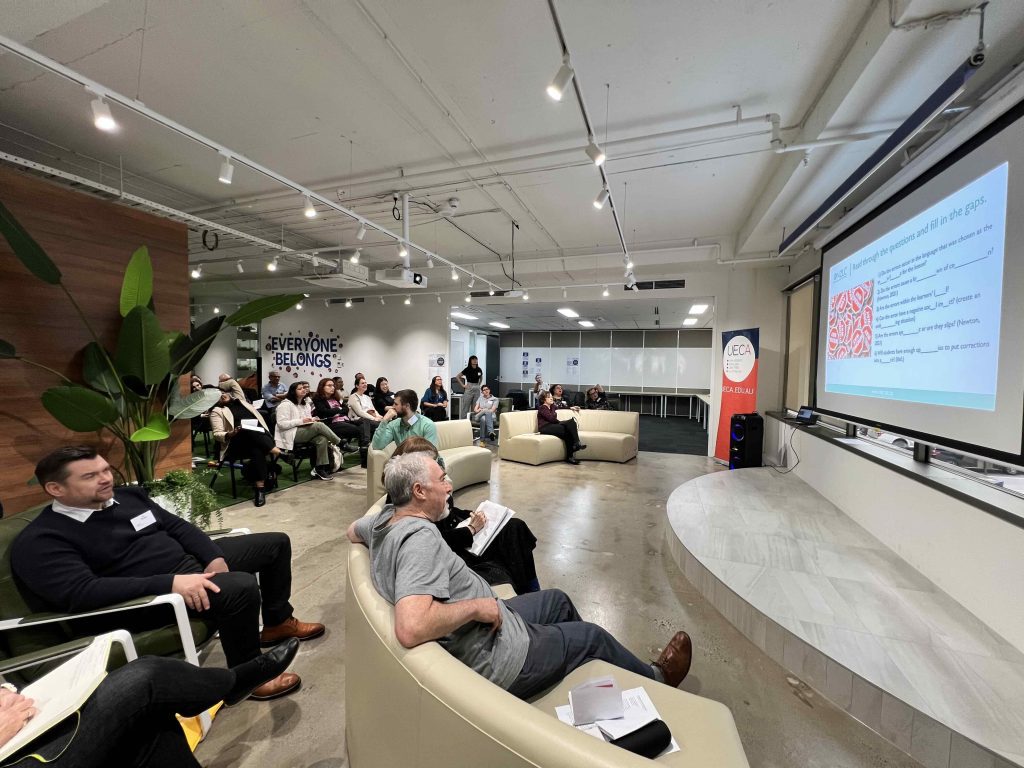
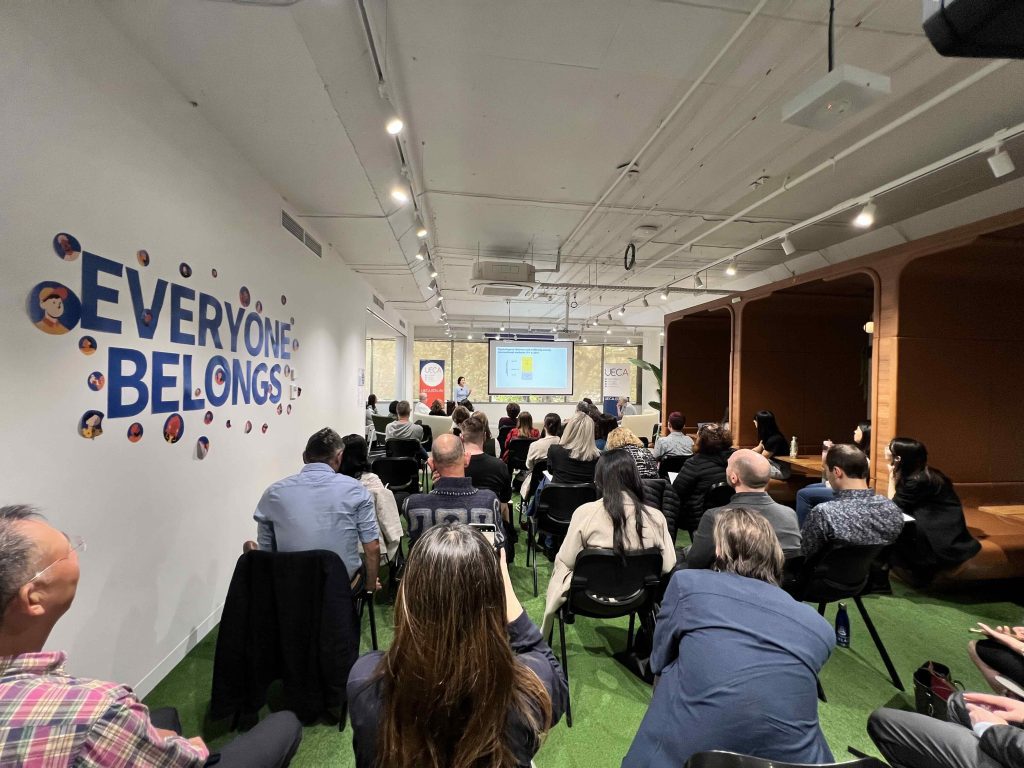
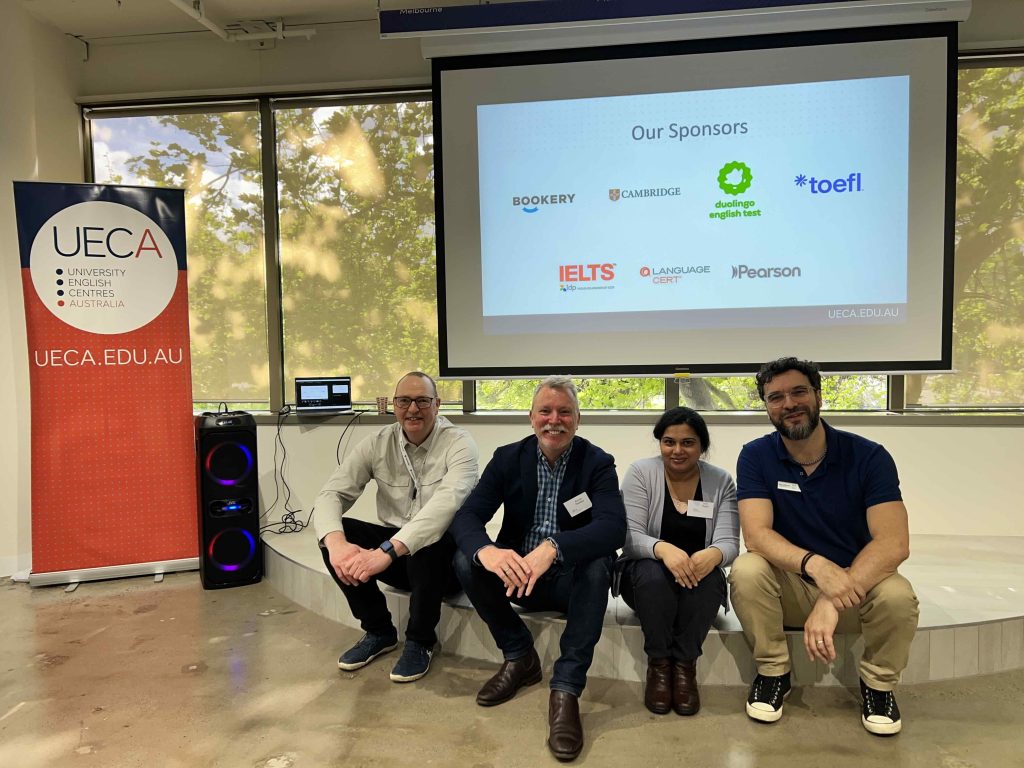
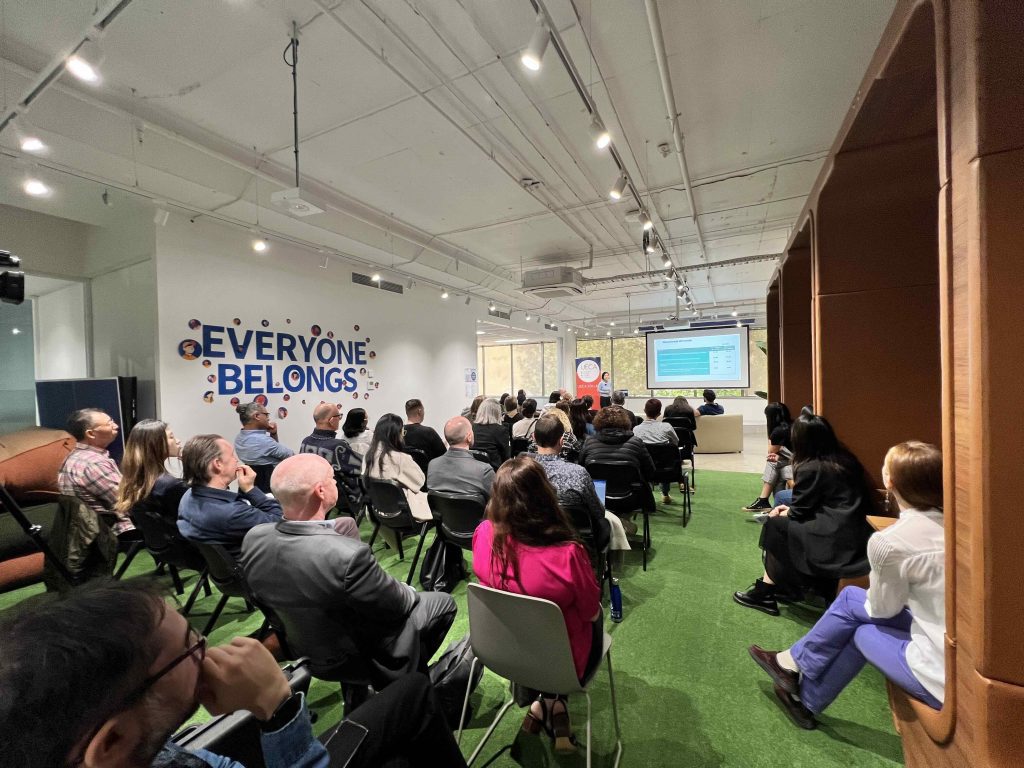
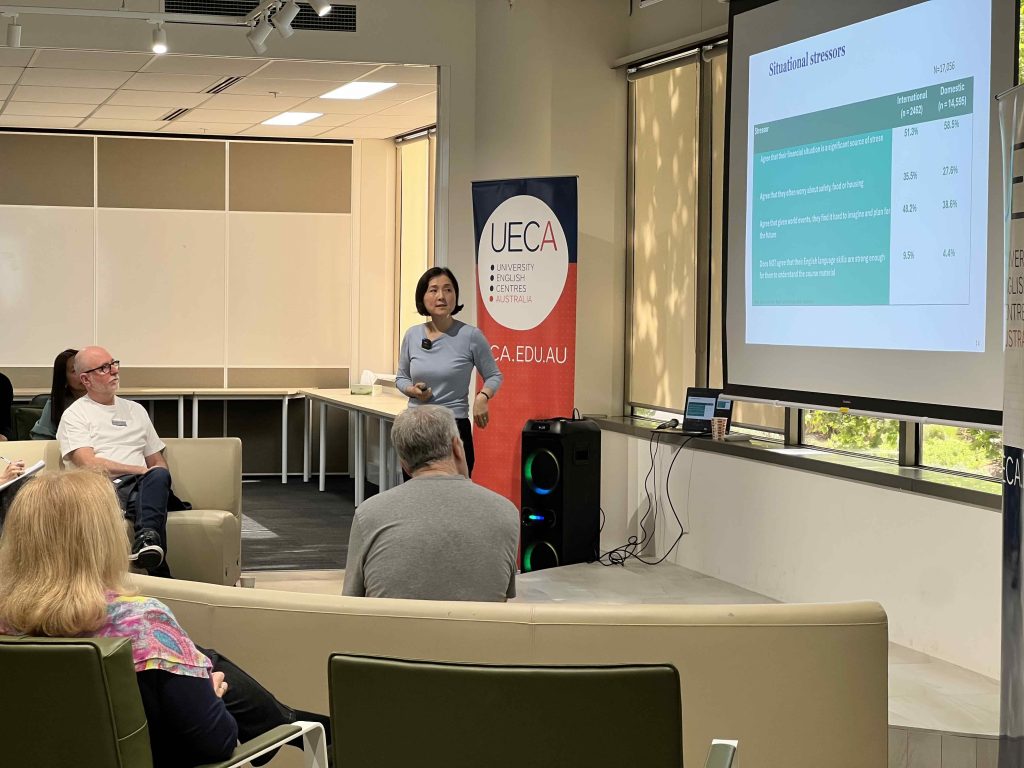
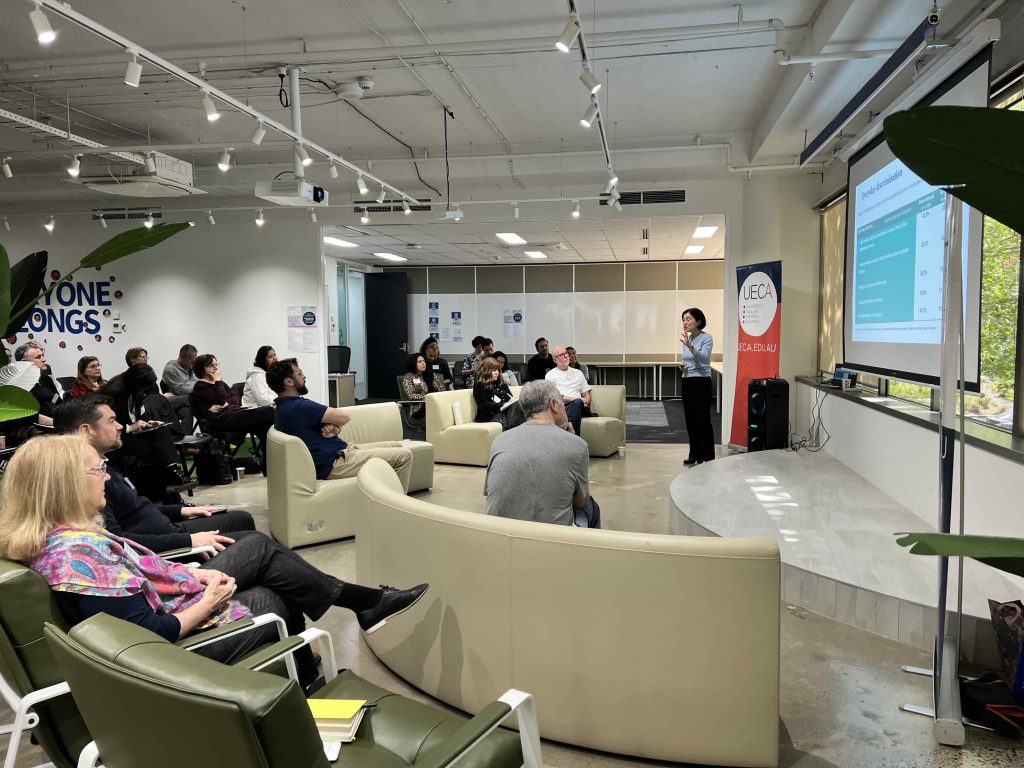
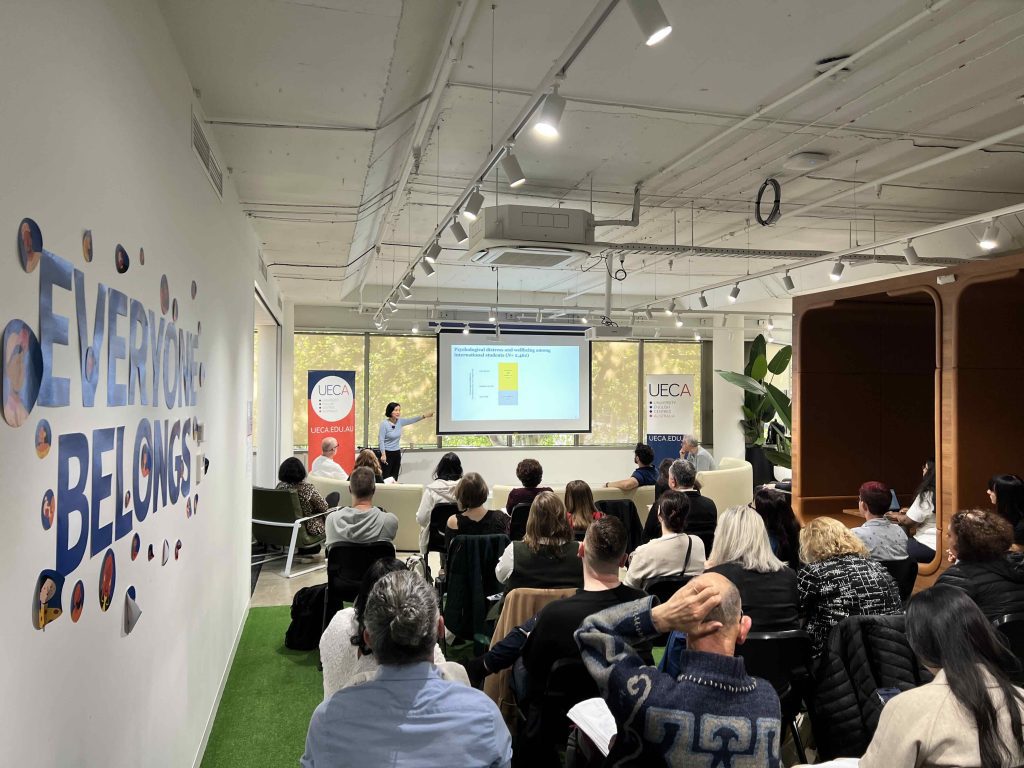
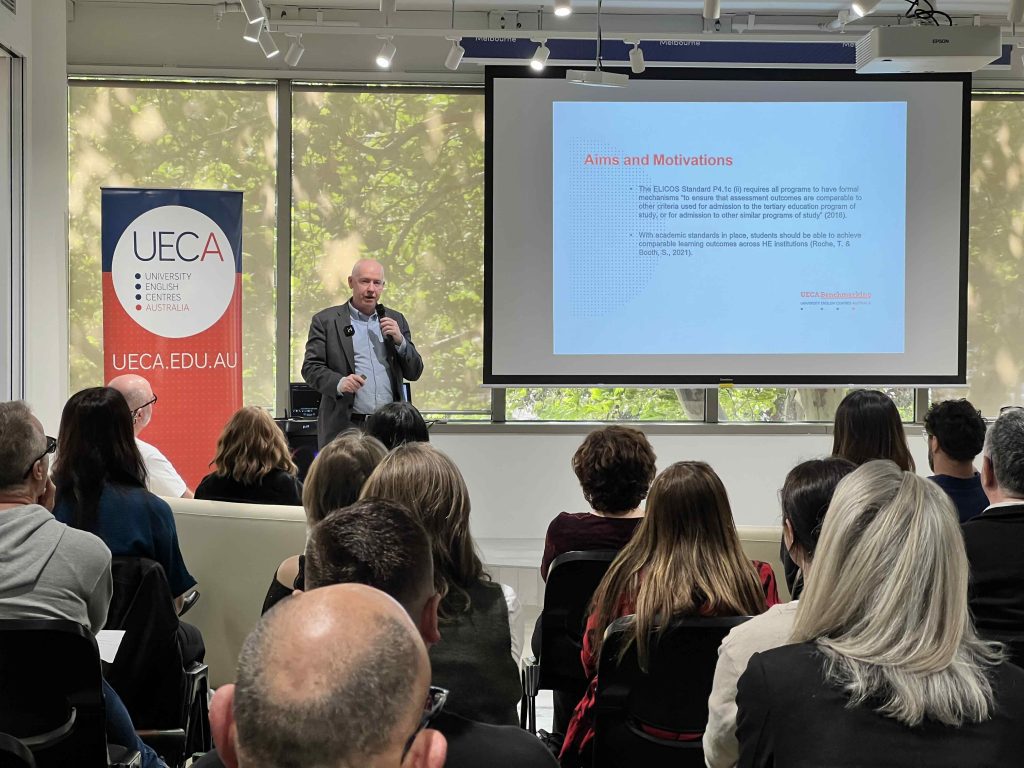
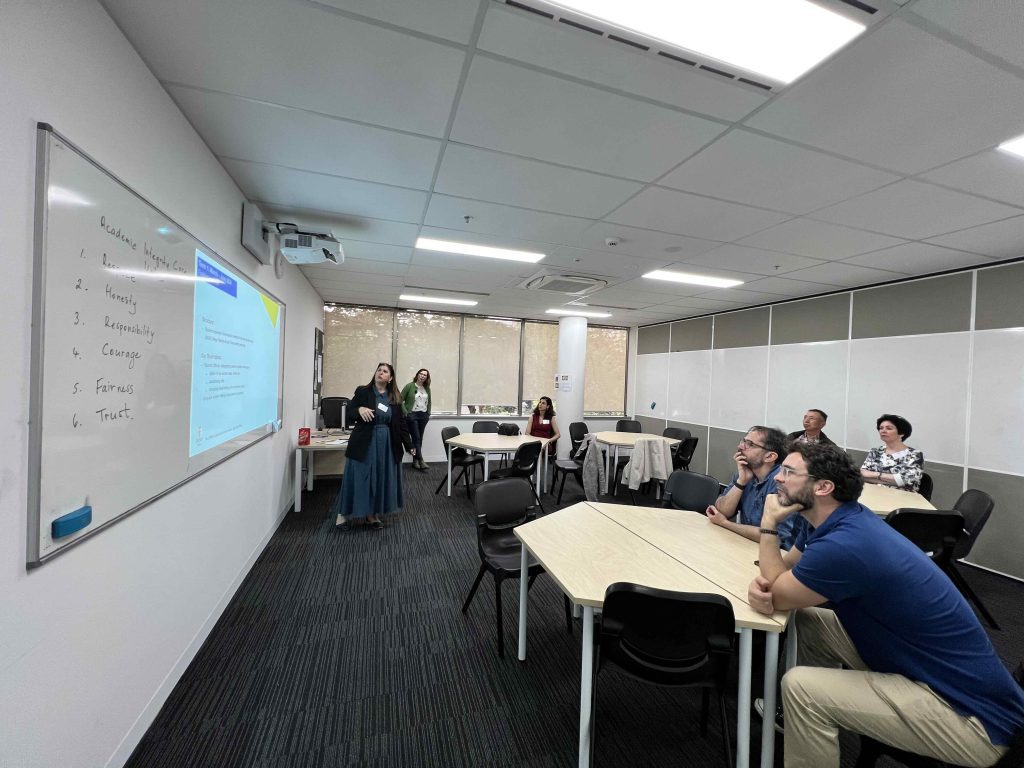
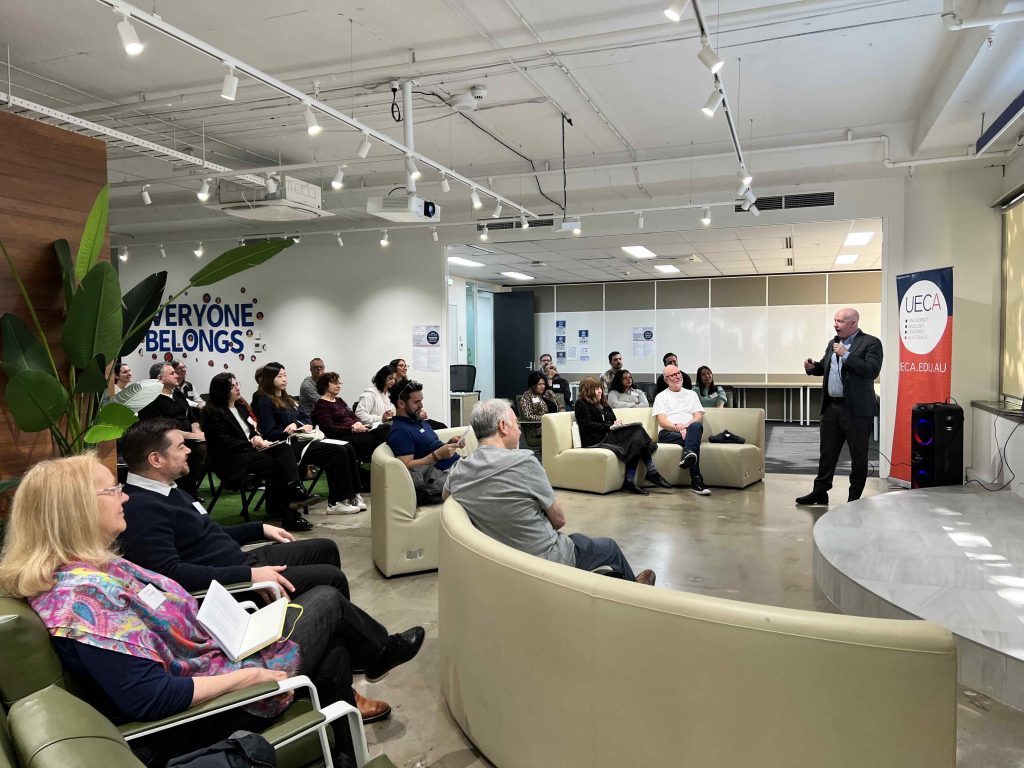
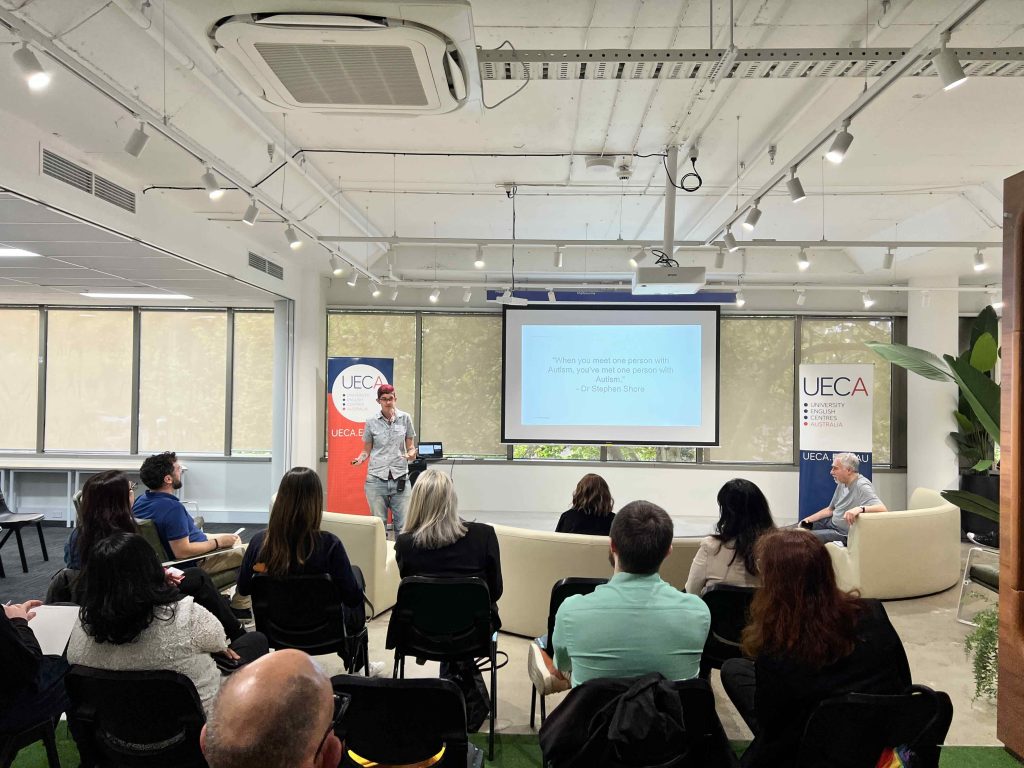
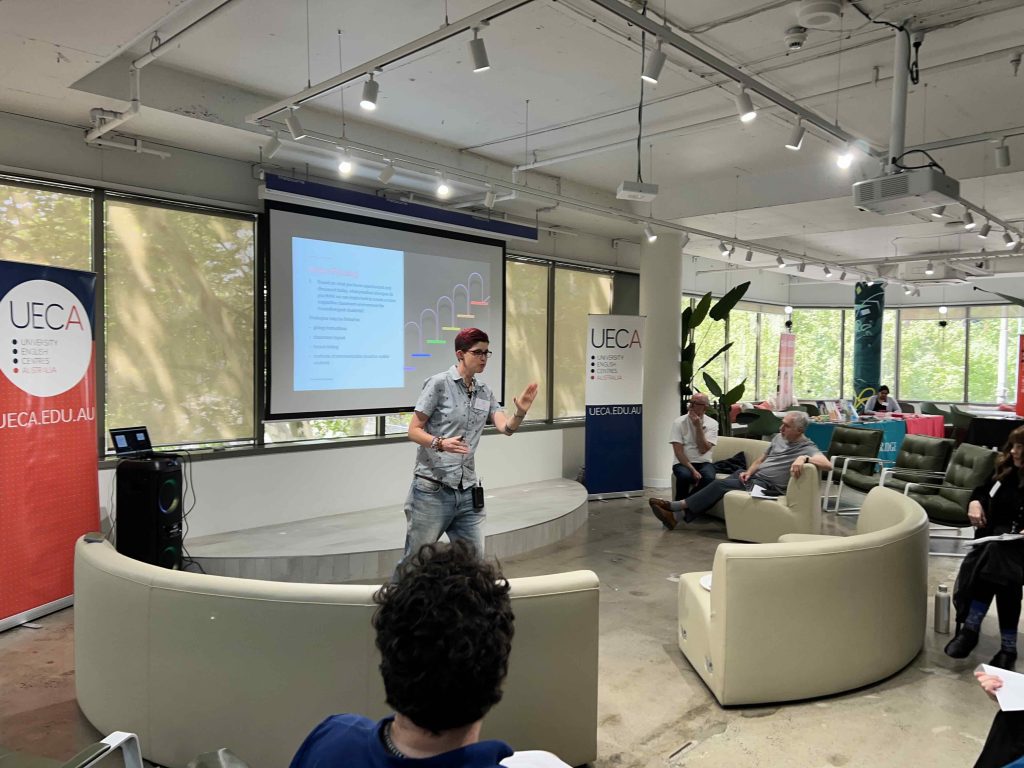
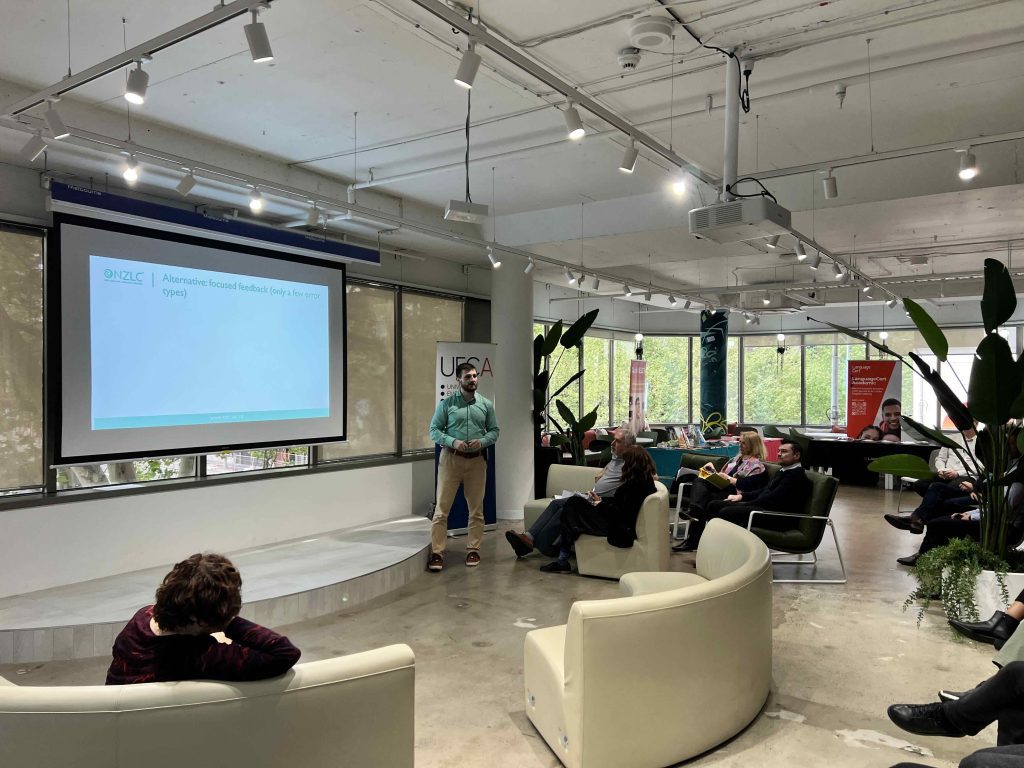
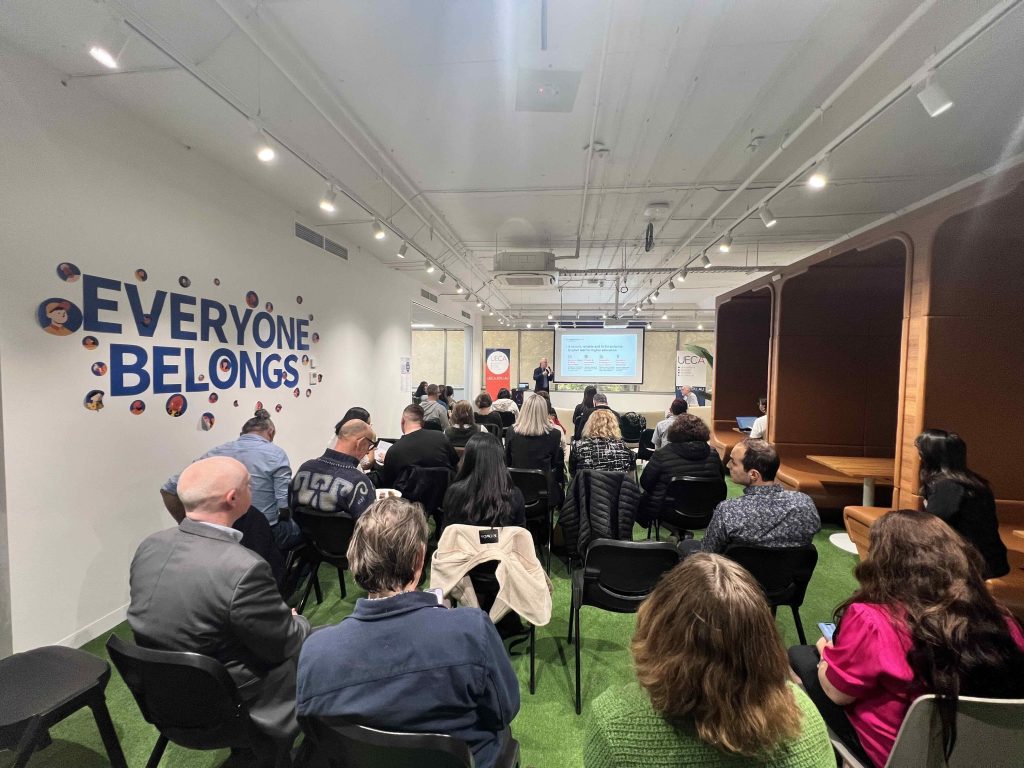
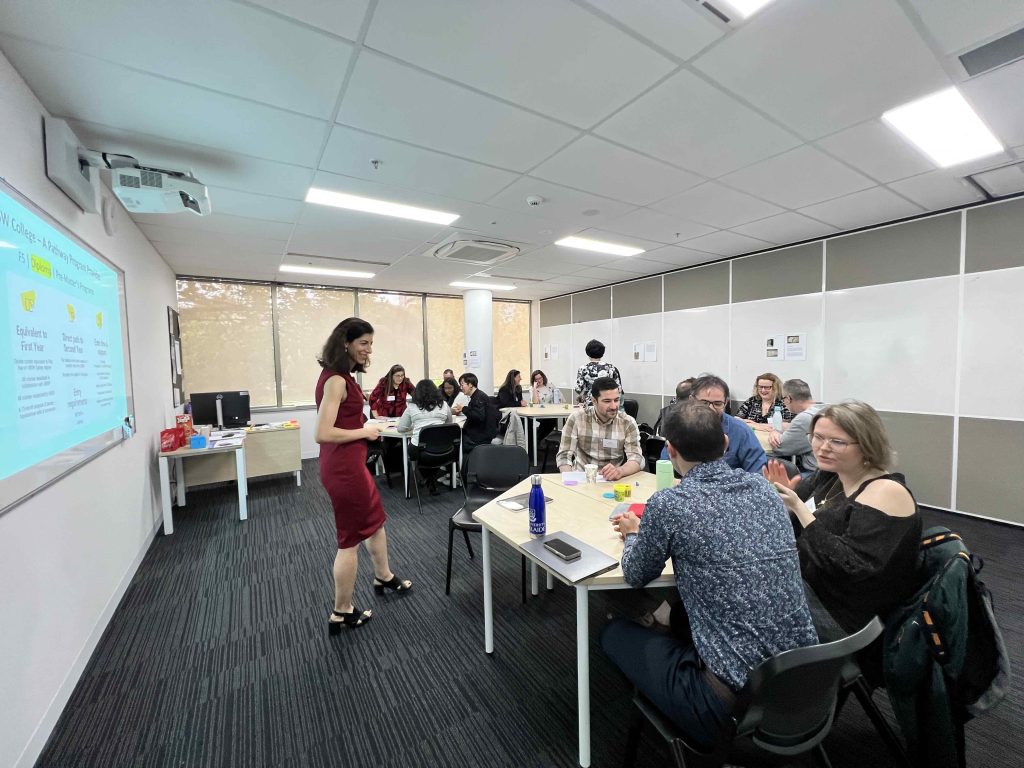
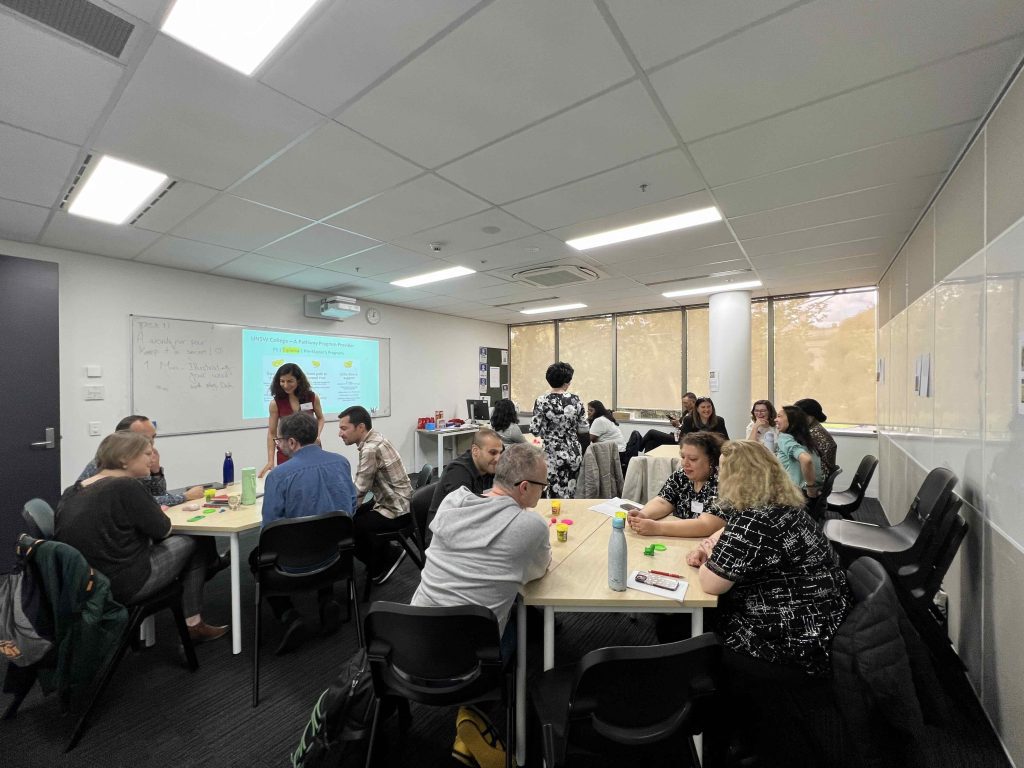
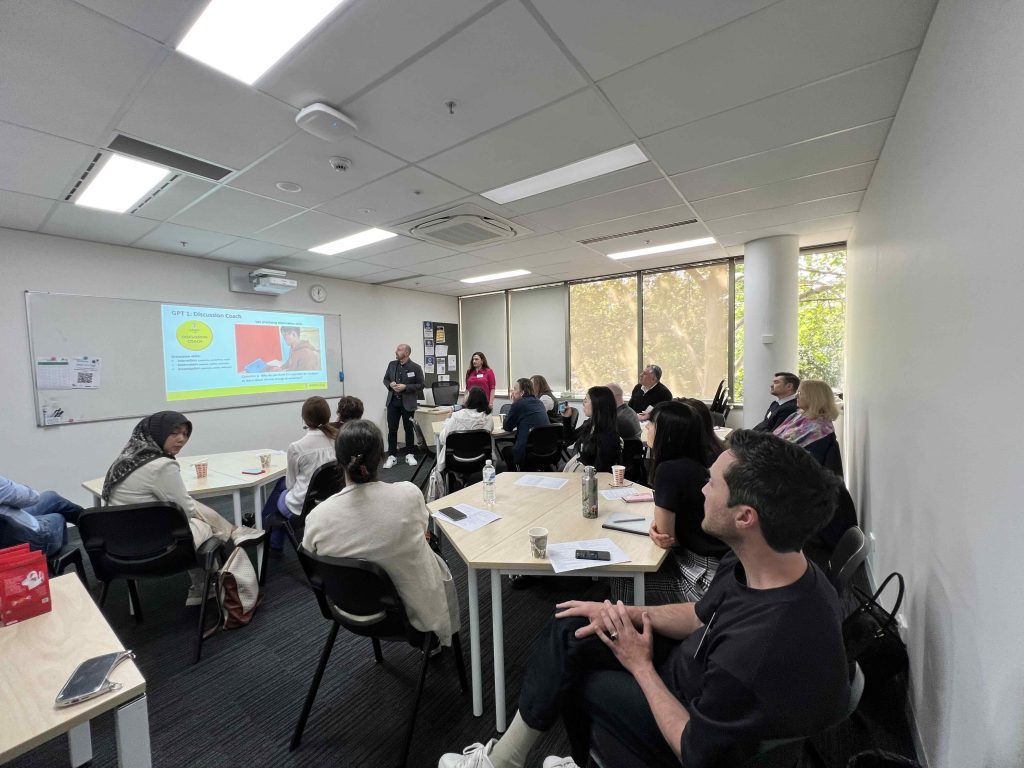
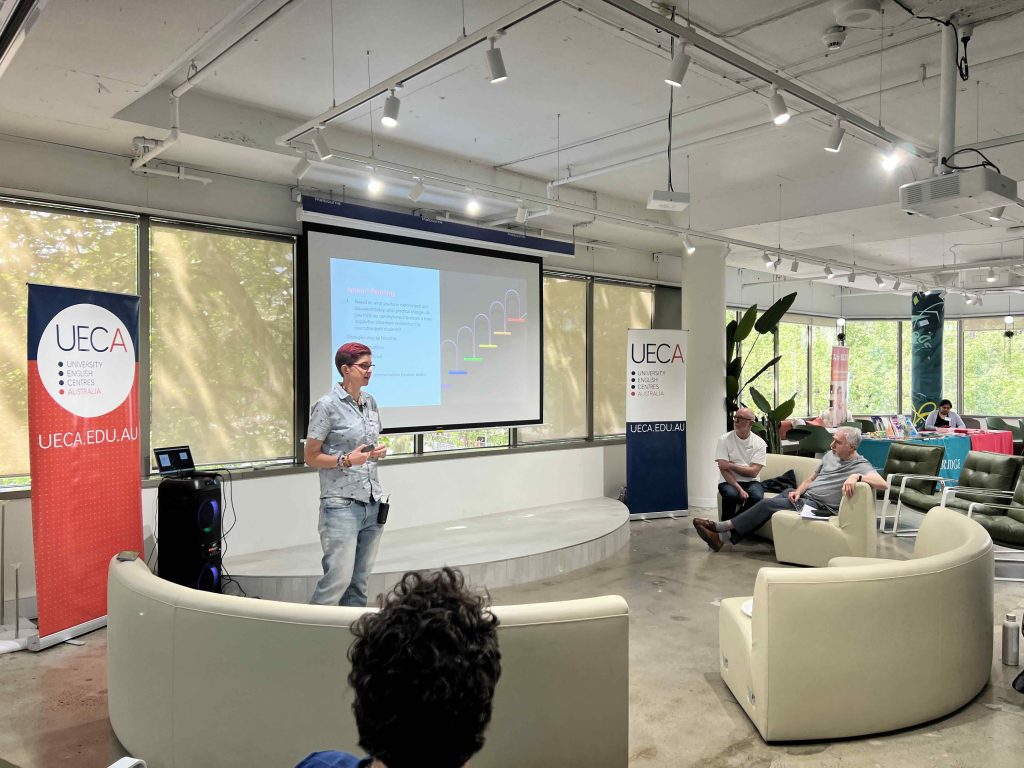
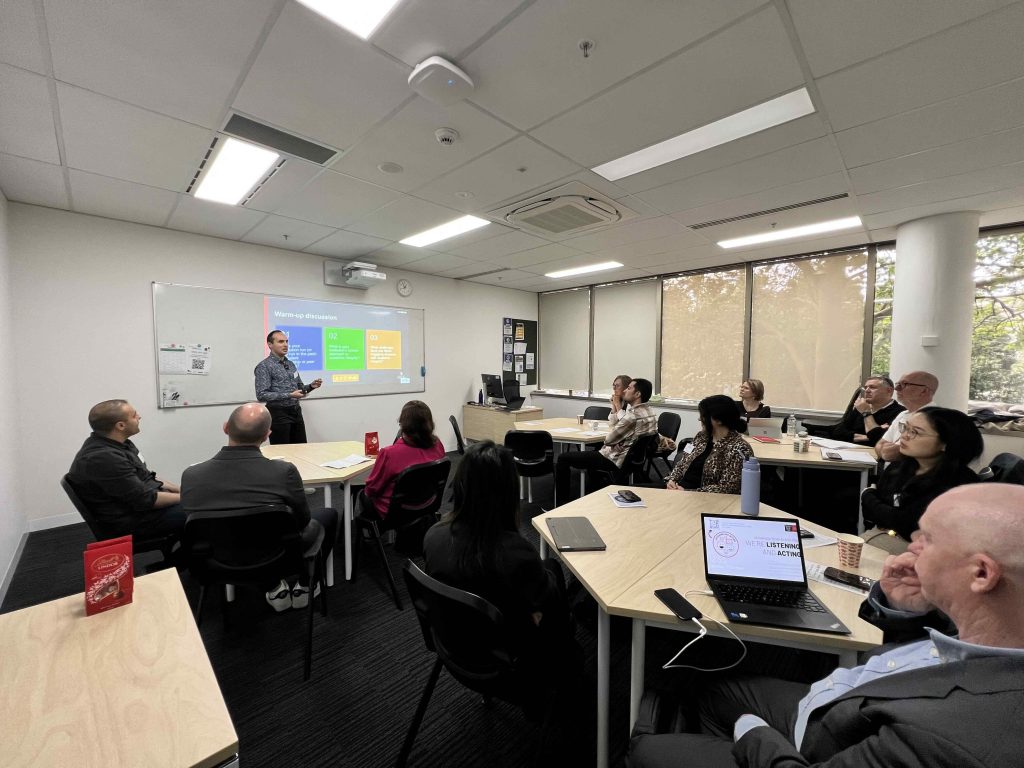
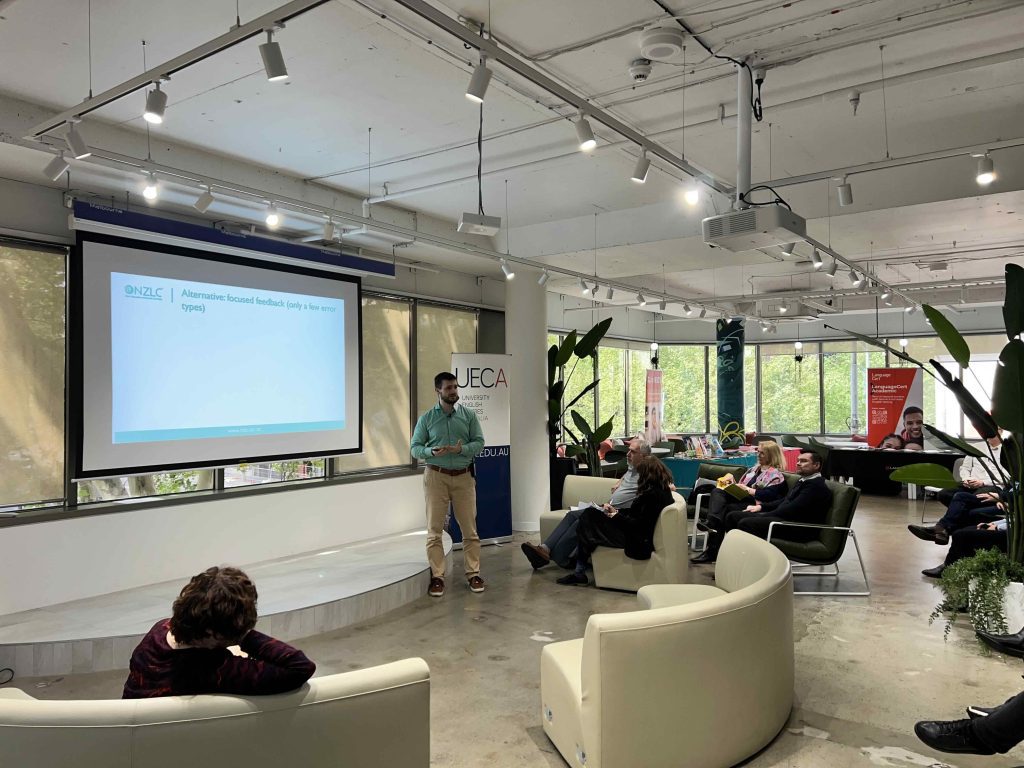
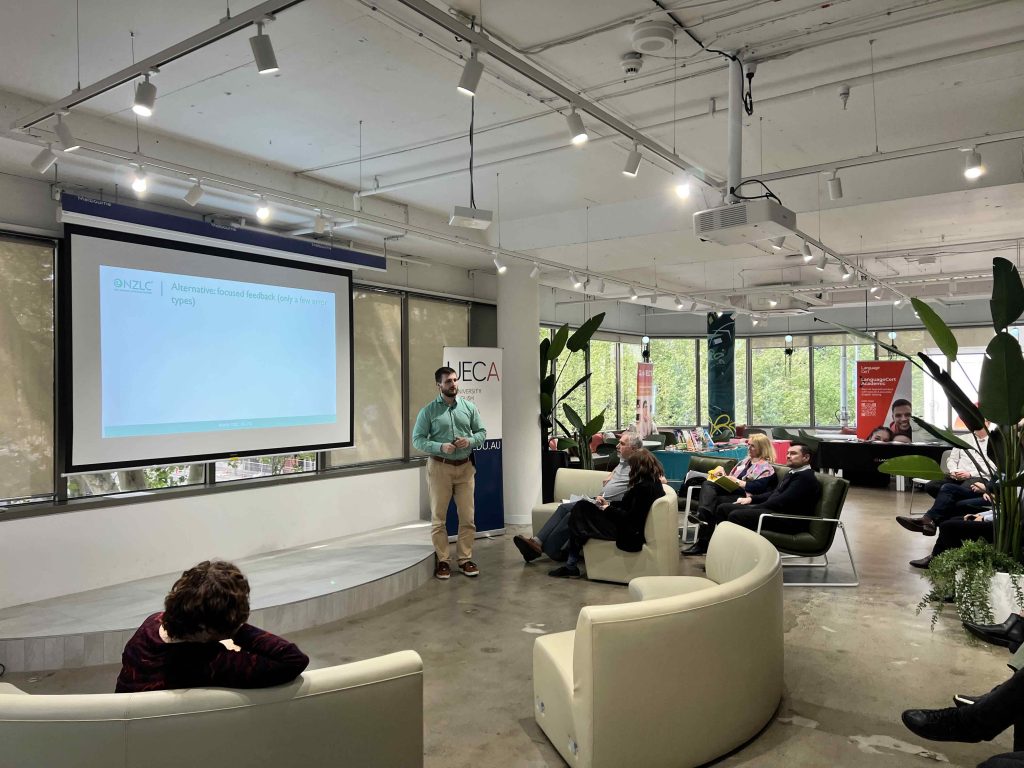
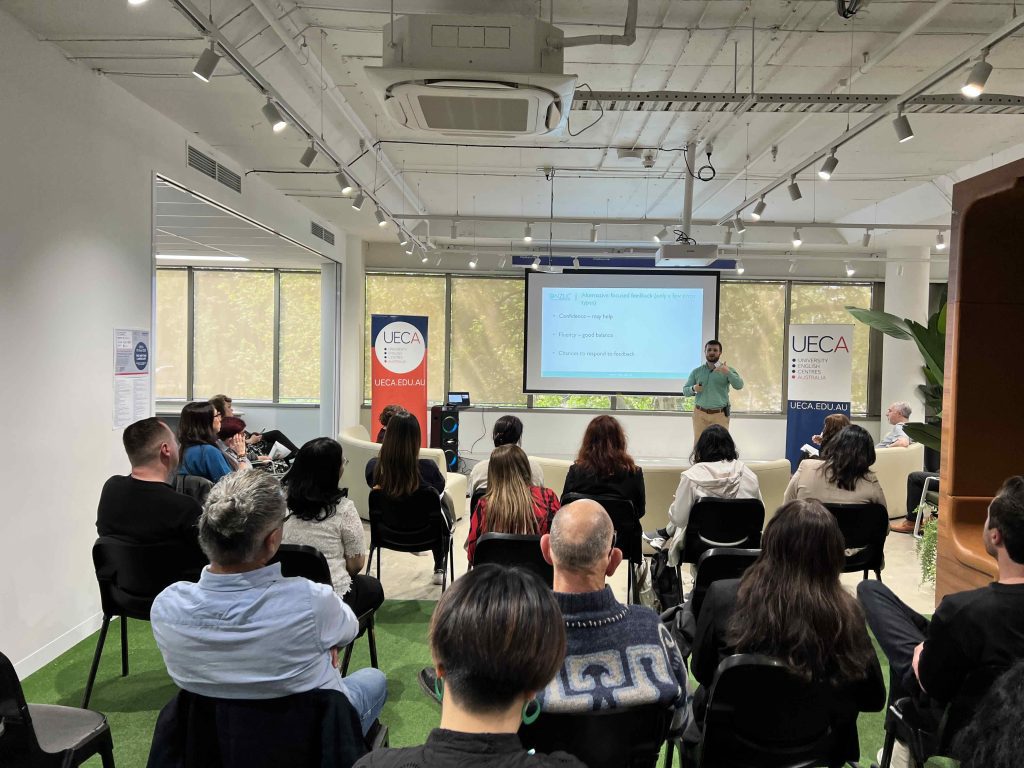
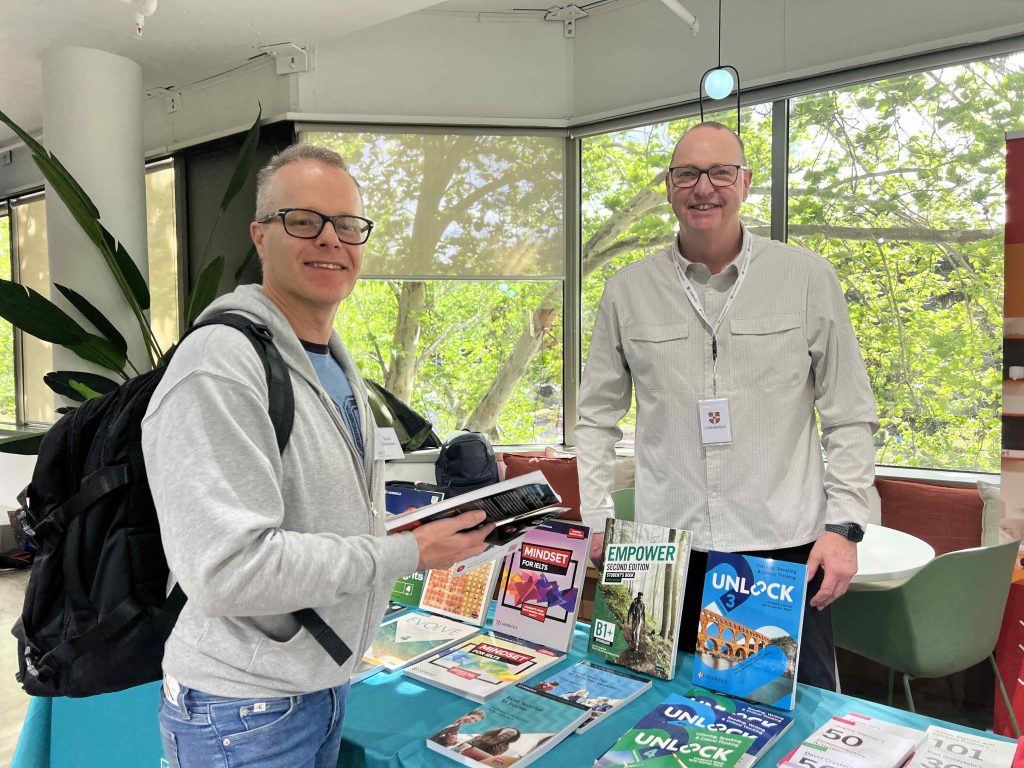
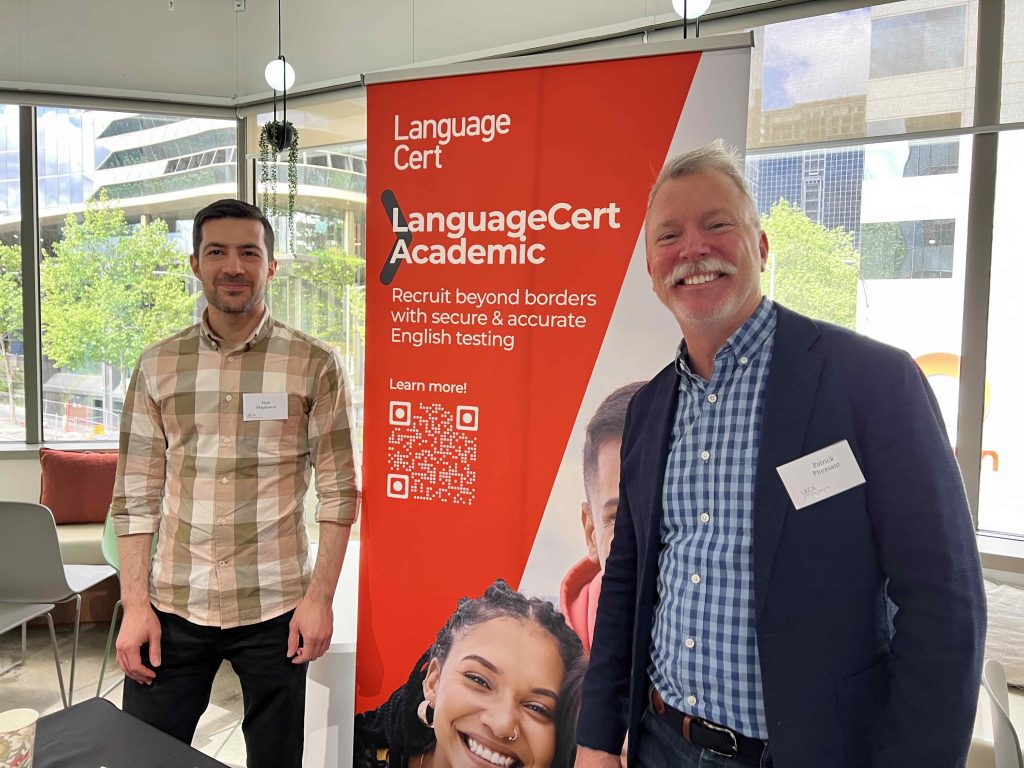
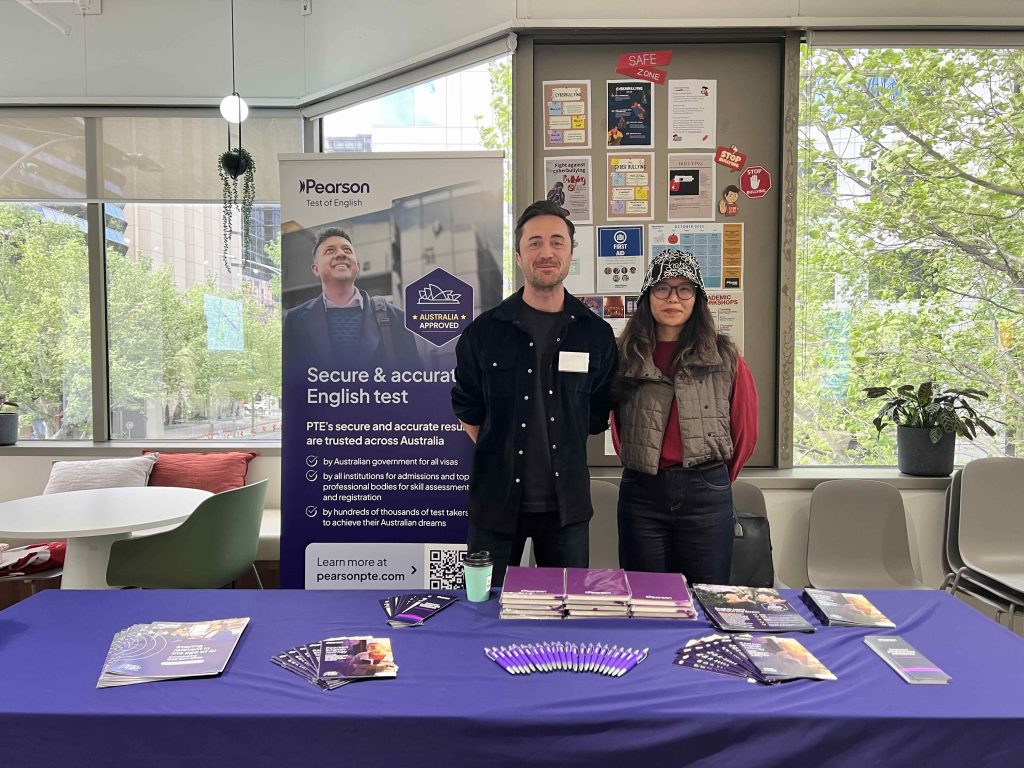
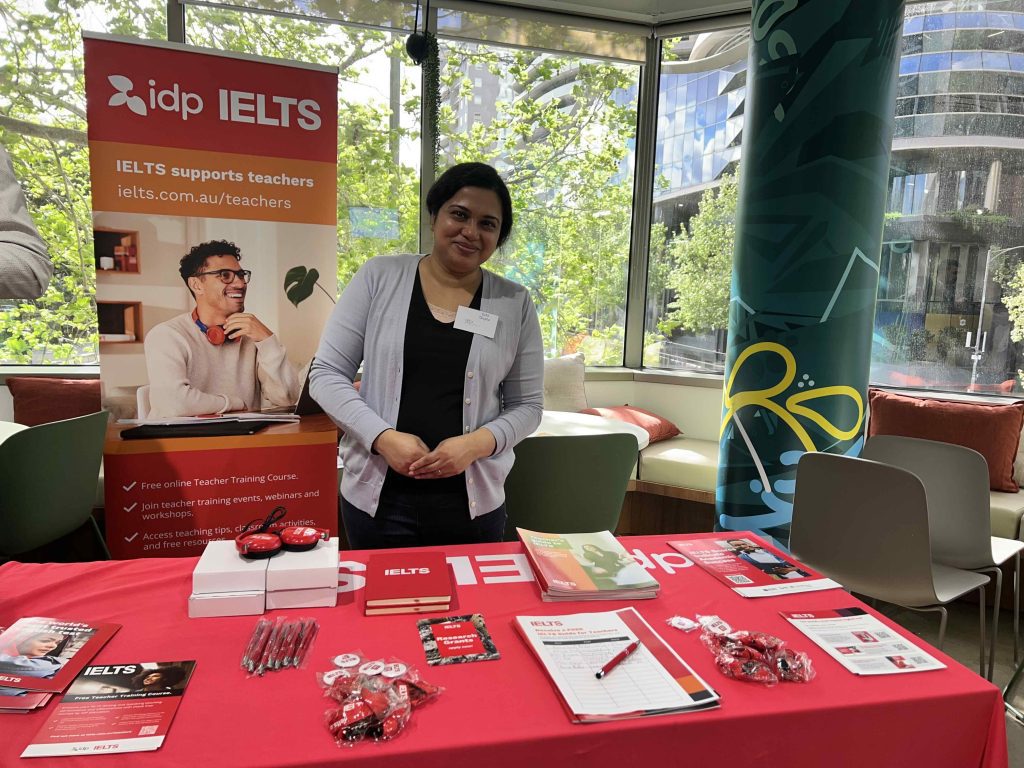
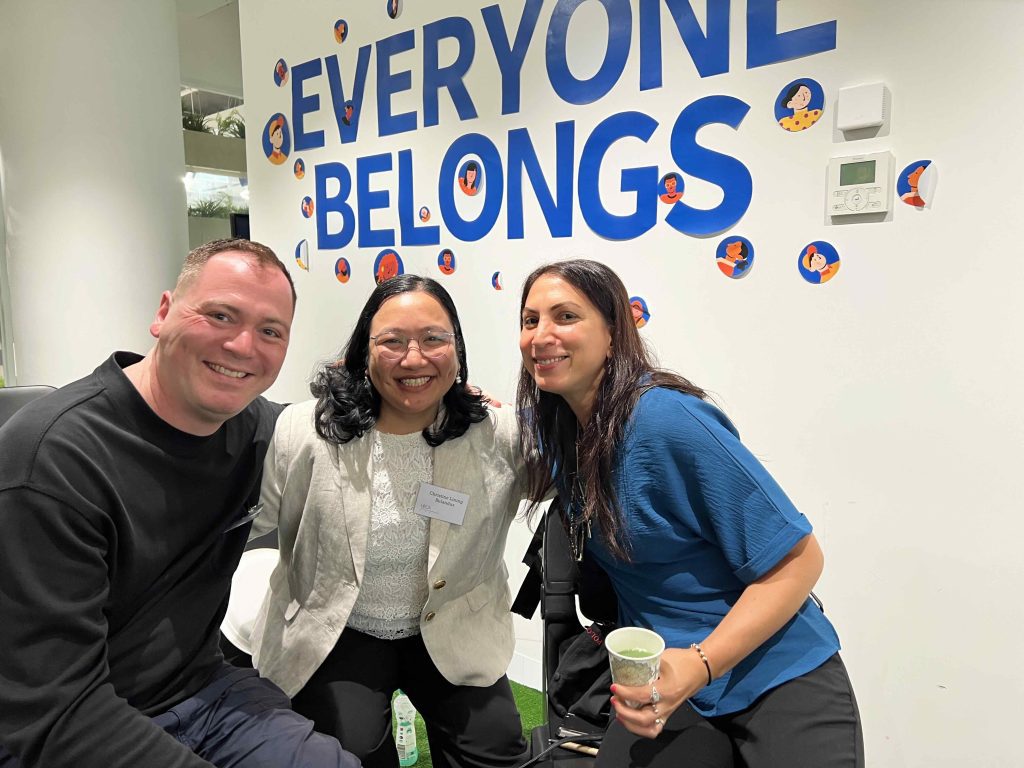
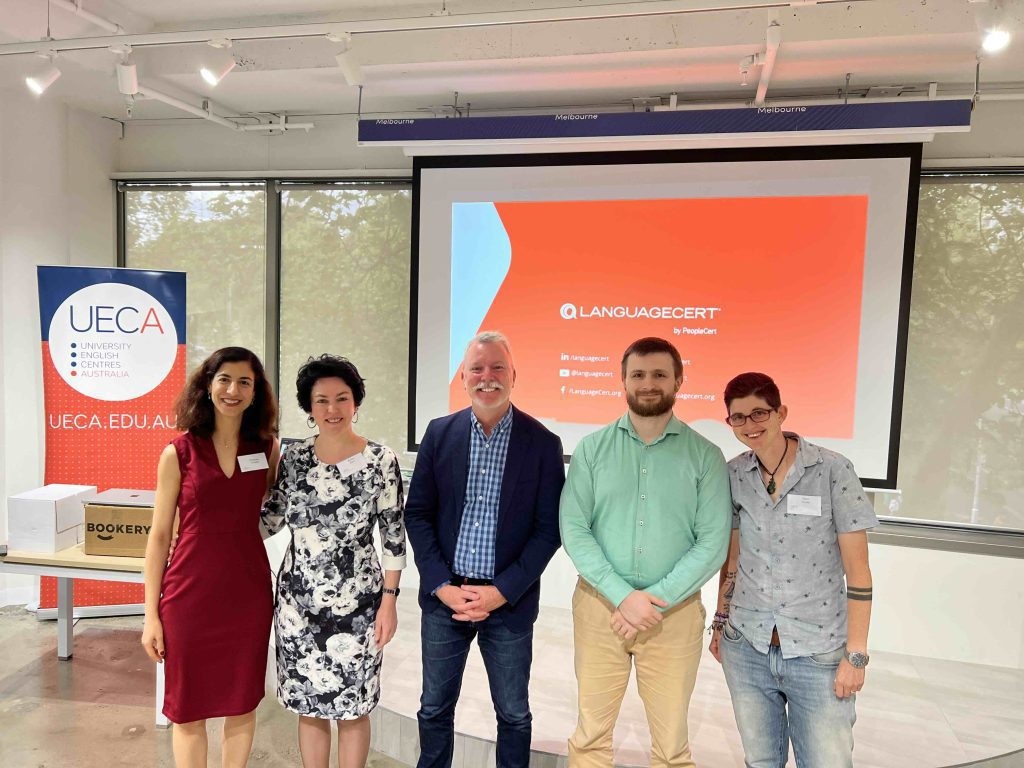
This year, our keynote speaker is Professor Chi Baik, who leads groundbreaking research on student experiences and mental wellbeing, directs major national studies informing university policies, currently heads an Australian Research Council project on student mental health, and develops innovative teaching programs.


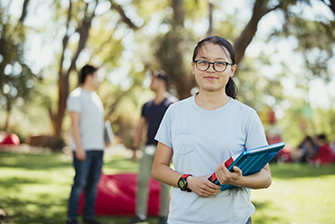
With thanks to our Event Sponsors
Bookery
Cambridge
Duolingo
ETS TOEFL
IDP IELTS
Language Cert
Pearson
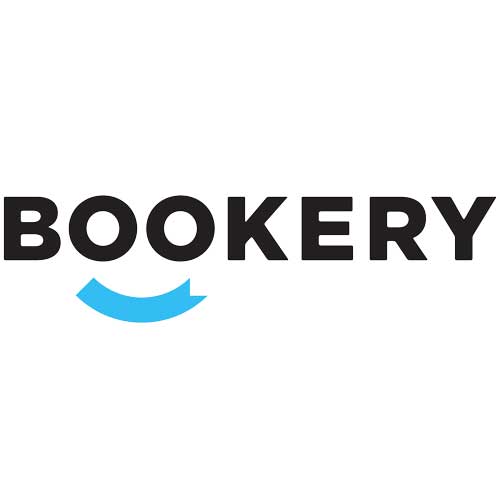

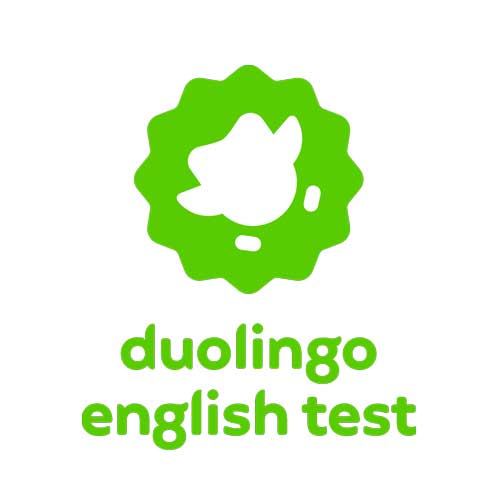
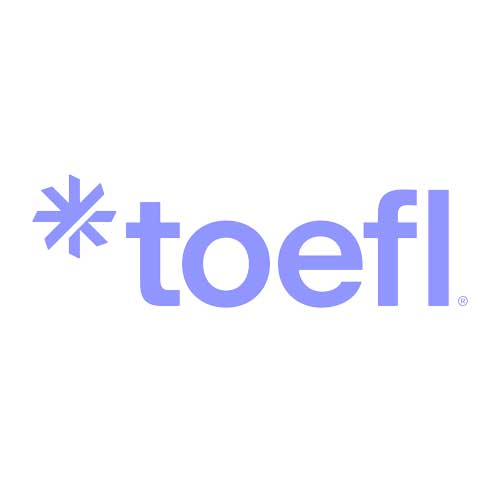
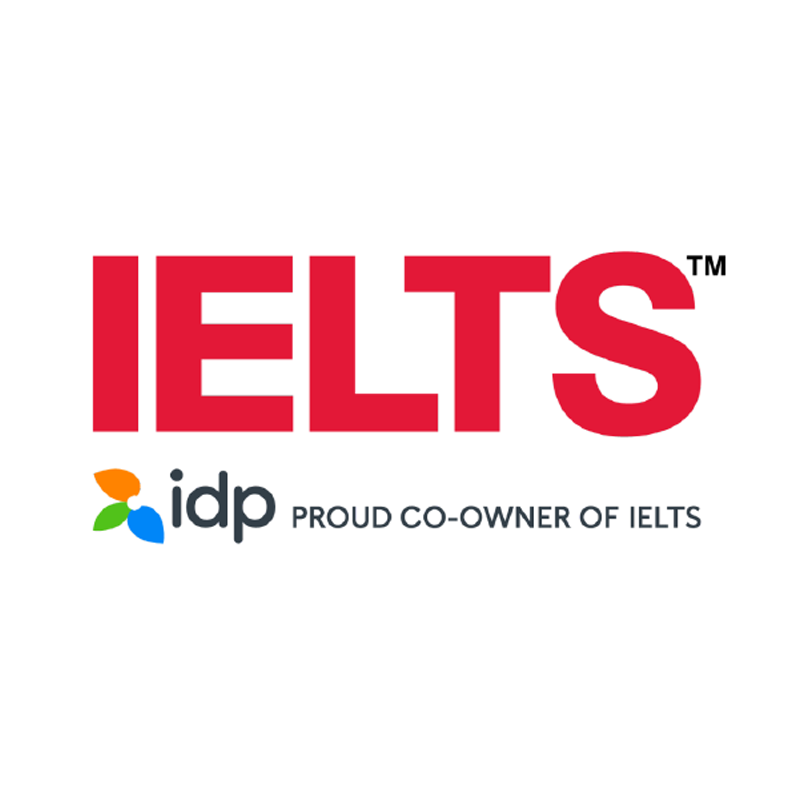


Access all content at UECA Online
You can access videos and download presentation materials from UECA Online.
Event Program
Face to Face – Saturday, 11 October 2025
Registration and Tea/Coffee/Snacks
Location: Lunch Area
9:15 – 9:45 AEDT
Acknowledgement of Country
Welcome to the UECA PD Fest
Location: Main Lounge
9:45 – 10:00 AEDT
Heather Thomas, UECA Vice President and Deputy General Manager/Director Global Programs, UOW College
Opening Plenary: Chi Baik
Location: Main Lounge
10:00 – 10:45 AEDT
From Surviving to Thriving: Understanding and Supporting International Student Wellbeing in Australian Higher Education
Professor Chi Baik
Professor of Higher Education | Melbourne Centre for the Study of Higher Education |Faculty of Education
The University of Melbourne
Abstract
What influences the wellbeing of international students in today’s universities?
This presentation shares key findings from recent research on the wellbeing of international students in Australian higher education. It highlights that, despite facing unique stressors, international students often report similar (or better) mental health and wellbeing than their domestic peers, possibly due to adaptive ways of thinking that help them manage emotional challenges.
These insights offer a more nuanced understanding of student resilience and wellbeing. As the first educators many international students encounter, English language teachers are well-placed to support student wellbeing from the beginning of their studies in Australia.
Bio
Chi is a Professor in Higher Education at the University of Melbourne’s Centre for the Study of Higher Education. Her research focuses on factors influencing the educational experiences and outcomes of diverse student cohorts in higher education. She has led major national projects on the First Year Experience, student mental wellbeing, and international student engagement.
Chi currently leads an ARC-funded project investigating alterable factors affecting student mental health and wellbeing in Australian universities. She also coordinates the CSHE’s Graduate Certificate in University Teaching and supervises doctoral candidates.
Find out more:
The University of Melbourne: https://findanexpert.unimelb.edu.au/profile/20973-chi-baik
Email: cbaik@unimelb.edu.au
UECA Benchmarking Project: Ben Doran and Aparna Jacob
Location: Main Lounge
10:45 – 11:15 AEDT
Language Cert Award: Dr Patrick Pheasant
Location: Main Lounge
11:15 – 11:30 AEDT
Morning Tea
Location: Lunch area
11:30 – 11:45 AEDT
Session 1A – Walk in Their Shoes: Neurodivergent learners in ESL classrooms
Location: Main Lounge
11:45 – 12:25 AEDT
Dani Gross, University of Sydney, Centre for English Teaching
Abstract
Recently, there has been a significant increase in the recognition of neurodivergent learners in ESL classrooms, and many educators and leaders are now focusing on how to better support these students. This interactive session invites participants to share their experiences of working with neurodivergent learners and explore strategies, both formal and informal, that have helped facilitate learning.
Dani will provide insights into the unique struggles faced by these learners, based on both personal experience and research. The presentation will examine the complexity of neurodivergence and discuss why a one-size-fits-all approach is unlikely to be inclusive for every individual. While challenges exist, accommodations and alterations can have a meaningful impact in the classroom. However, there are limitations and challenges that educators face in meeting the needs of neurodivergent learners. Fundamentally, empathy is one of the most powerful tools we have to understand and support students. This session aims to help participants develop that empathy through shared experiences and reflection. Let’s walk in their shoes.
Bio
Dani Gross is originally from the UK and came to Australia in 2010 for a holiday, which some argue she is still on. Dani has a BA in Theatre Studies and Education and has been working in the ELICOS industry for 15 years. As a neurodivergent person, Dani has lived experience of trying to navigate education in a largely neurotypical world and because of this, Dani is passionate about increasing awareness and empathy for these students and finding the most manageable ways they can be supported.
Session 1B – Custom GPTs for ESL Students and Teachers
Location: Room 3
11:45 – 12:25 AEDT
Diala Ibrahim, UNSW College
Brad McClymont, UNSW College
Abstract
As AI continues to reshape education, Generative Pre-trained Transformers (GPTs) offer new opportunities to enhance teaching, learning, and assessment across English language programs. This session shares how a 2024 English Australia Action Research project at UNSW College, initially exploring AI as a brainstorming, discussion, and feedback tool, has led to the development and integration of custom GPTs within academic English curricula. Built using OpenAI’s GPT framework, these bots are designed to model expert thinking, scaffold academic literacy, and extend personalised support for teachers and students while embedding ethical use of AI.
The presentation will showcase a range of custom GPTs currently embedded in the University English Entry Course (UEEC), Foundation Standard A and B (FS), and the Communication and Academic Literacy (CAL) programs at UNSW College. These tools help students practise academic discussion and prepare for assessments through structured, personalised engagement and instant feedback. In addition, GPTs designed for teachers offer practical support with lesson planning and understanding assessment expectations.
Attendees will gain insights into how these tools were created and implemented, and how they might be adapted to suit a variety of teaching contexts. The session will highlight ethical considerations, onboarding strategies, and principles of prompt design, while inviting broader reflection on how teachers can adapt confidently, include diverse learners, and inspire future-focused innovation through AI-enhanced practice.
Bios
Diala Ibrahim and Brad McClymont are Educational Professionals and Language Facilitators at UNSW College with expertise in academic English, curriculum design, and digital innovation. They design communicative AI-enhanced tools that enrich blended delivery, personalise learning, build autonomy, and strengthen critical thinking and metacognitive awareness. Passionate about the future of language education, Diala and Brad focus on exploring how technology can create transformative learning experiences and foster collaboration among students, educators, and institutions.
Session 1C – Designing Future-ready Classrooms for Diverse Minds
Location: Room 4
11:45 – 12:25 AEDT
Mahnaz Armat, UNSW College
Adina Stan, UNSW College
Abstract
With recent policy changes in international education and the growing presence of local student cohorts, classrooms have become more heterogeneous than ever before.
This shift has prompted a rethinking of assessment and classroom activity design with a focus on diverse skill development, varied modes of evaluation, and scaffolded learning experiences. In response, a Progressive Assessment Framework has been implemented in the Diploma in Media program at UNSW College, a university pathway program.
This assessment design draws on progressive levels of cognition informed by Bloom’s Taxonomy and accommodates a wide range of learner skillsets through a balanced mix of theoretical, practical, and creative components. This approach ensures equal opportunities for all students regardless of prior knowledge or educational experience creating an inclusive and engaging environment that challenges advanced learners while supporting those who need extra guidance.
Evidence from Moodle analytics, student surveys, educator feedback, and classroom observations demonstrates that this assessment model combined with scaffolded classroom activities grounded in backward design principles offers multiple forms of evaluation that effectively support diverse learning styles and improve overall student outcomes.
Bios
Mahnaz Armat is currently a leading Arts (Social Science) education professional at UNSW College, a university pathway program in Sydney, Australia. She has extensive experience in ESL teaching, supporting non-native English learners in enhancing their language proficiency and communication skills. Her primary focus is on assisting international students in meeting tertiary entry requirements by fostering independent thinking, problem-solving abilities, and academic integrity. Additionally, she works to raise cultural awareness and develop strategies to better prepare these learners for a new academic environment.
Adina Stan is an experienced educator with over 15 years in teaching and curriculum design. Her expertise encompasses assessment for and of learning, evaluation of embodied learning, and maintaining assessment integrity in the era of generative AI. Adina is particularly interested in innovative assessment methods, including role-play simulations, dynamic assessments, and viva voce examinations.
Session 2A – Focused Feedback: Actionable Instruction
Location: Main Lounge
12:30 – 13:10 AEDT
Ian Mazykin, New Zealand Language Centre
Abstract
Language-focused learning constitutes an important part of a balanced ESL/EFL curriculum, and feedback is an integral part of it. However, how much feedback should we give and how? Is it better to make as many corrections as possible so that mistakes do not fossilise?
Or, maybe, less could be more? This presentation focuses on focused feedback, the kind of feedback that targets only a few error types. It discusses why it is beneficial, what criteria to use when selecting errors, and how to deliver the feedback effectively.
Bio
Ian finished the CELTA course in 2014 and the DELTA course in 2023. Ian is currently enrolled in an MTESOL program at Victoria University of Wellington. Ian has been teaching English for about 11 years in Russia, China, and New Zealand, and currently works as Exams Manager at New Zealand Language Centre in Auckland.
Session 2B – Academic Integrity Ambassador Program
Location: Room 3
12:30 – 13:10 AEDT
Gabriel Azpilcueta, English Language Centre – University of Adelaide
Abstract
In an era where generative AI and shifting student profiles are reshaping the ELICOS classroom, the University of Adelaide’s English Language Centre has pioneered a new approach to integrity education: the ELC Academic Integrity Ambassador Program. This student-led initiative reimagines integrity not as a set of punitive rules, but as a lived, collaborative practice embedded in the student experience.
Unlike traditional teacher-driven workshops, the program recruits and trains current and former students as volunteer ambassadors, equipping them with leadership, communication, and active learning skills. Ambassadors co-create and deliver interactive workshops, scenario-based activities, and peer mentoring sessions that address common integrity challenges specific to the ELICOS context. By framing academic integrity through peer-to-peer dialogue, the program makes complex expectations more accessible to international students, helping them navigate cultural differences and develop ethical academic habits.
The program has already engaged hundreds of students in integrity-focused events in its first iteration in semester 1 2025, including a student-led Academic Integrity Week that transformed policy into practice through games, in-class activities, and meaningful conversations. Initial survey results indicate that this approach increases understanding, confidence, and willingness to discuss integrity openly.
This presentation will showcase the program’s design, activities, and early outcomes, highlighting how ELICOS centres can embed innovation and integrity through low-cost, scalable, and student-centred initiatives. It will argue that empowering students as leaders is not only an effective response to the challenges of AI and misconduct, but also a sustainable model for building a culture of integrity in language education.
Bio
Gabriel Azpilcueta is an English language teacher and Academic Integrity & Assessment Officer at the University of Adelaide’s English Language Centre. He leads the Academic Integrity Ambassador Program, an award-winning, student-led initiative that empowers international students to promote ethical learning practices. His work centres on innovation in integrity education, peer-to-peer learning, and the integration of AI in academic contexts. Gabriel is also Deputy Convenor of the English Australia EdTech Special Interest Group, supporting sector-wide collaboration on educational technology.
Session 2C – The UNSW Law Study Hall: Integrity in Action
Location: Room 4
12:30 – 13:10 AEDT
Tania Bencic, UNSW College
Carmel Walsh, UNSW College
Abstract
Increasingly international university students post enrolment are facing significant challenges related to their coursework, academic skills, and completion of high-stakes assessment tasks. Whilst some of these issues relate to students’ language proficiency, they can also relate to discipline-specific language and concepts. To address this gap, the UNSW Law Faculty and UNSW College collaborated on an initiative to establish a Law Study Hall for students.
Using an ‘integrated learning support’ framework, the initiative combined face-to-face support from language advisors with law peer mentors to co-design a program that could be accessed by law students outside regular lecture and tutorial hours. This created a ‘third space’ for students as an intersection of linguistics and discipline-specific pedagogy. This innovative pedagogical space promotes co-learning and peer-supported academic development to enhance student academic and subject-specific skills.
This presentation will focus on the implementation of this initiative through an ‘integrated learning’ methodology and present key findings to analyse the value of the ‘third space’ and identify positive influences on a new pathway course curriculum to foster consistency and transparency for student progress. The initiative has become an ongoing program allowing students to bridge the gap between lectures, tutorials and independent study whilst also providing a safe environment to engage with peers and build language confidence, leading to discipline competence.
The Study Hall’s success highlights the impact of integrity in action bridging the gap between language and discipline content with English proficiency being a collective responsibility university-wide with the potential to extend to other faculties.
Bios
Tania Bencic, a Senior Education Professional at UNSW College in Sydney, has over 20 years teaching experience including China, Malaysia and Canberra. She has been a language advisor since the founding of UNSW Law Study Hall. In 2018, she was the joint winner of the English Australia Action Research Award.
Carmel Walsh is a Senior Educational Facilitator at UNSW College. She has worked in tertiary education for 25 years nationally and internationally. Carmel is passionate about enhancing the international student experience in Australia and has worked on the UNSW Law Study Hall since its inception.
Lunch
Location: Lunch area
13:10 – 14:00 AEDT
Session 3A – Reading the Room: Building Empathy and Validation
Location: Main Lounge
14:00 – 14:40 AEDT
Christine Lining Bulandus, Torrens University Language Centre
Abstract
Student well-being in ESL classrooms extends beyond language acquisition; it is rooted in whether learners feel heard, validated, and connected. This presentation explores how empathy and validation are essential for fostering well-being in ESL classrooms.
Paraphrasing plays a dual role in these contexts. Academically, it strengthens comprehension, critical thinking, and integrity in writing. In a counselling-informed sense, paraphrasing validates meaning, communicates active listening, and affirms emotions. When reframed as both a linguistic and relational skill, paraphrasing becomes a bridge between language learning and socio-emotional growth. Similarly, the Socratic method, posing open, reflective questions such as “If belonging was the answer, what might the question be?” encourages multiple perspectives, builds empathy, flexibility, and deeper understanding.
At Torrens University Language Centre, recent projects illustrated this integration. At the end of each project, TULC students participate in a collaborative ZINE-making activity. Students create “finished artefacts” weaving together personal stories, peer reflections, and cultural insights. Across these activities, empathy was not an abstract value but a practised skill: students listened attentively, rephrased meaning and validated perspectives.
By combining paraphrasing, reframing, and Socratic dialogue with creative, task-based pedagogy, educators can “read the room” more effectively, supporting both linguistic development and socio-emotional learning. This presentation offers practical strategies for designing lessons where empathy and validation are not just by-products but deliberate outcomes, ensuring classrooms are transformative spaces not only for language learners but for lifelong learning.
Bio
Christine Lining Bulandus is a university lecturer and counsellor-in-training with over a decade of experience in English language teaching across primary, secondary, and tertiary contexts. She currently teaches TESOL at Torrens University, where she integrates creative, task-based pedagogy with counselling-informed practices to foster student well-being, resilience, and authentic communication. Her professional interests include intercultural communication, heritage language learners, and embedding socio-emotional learning in ESL classrooms, informed by her dual background in education and student support. As a practising visual artist, Christine brings creativity, compassion, and critical inquiry into both her teaching and professional practice.
Session 3B – ELT with AI: Autonomy, Agency, Practice
Location: Room 3
11:14:00 – 14:40 AEDT
Emma Morton, Hawthorne Melbourne and Monash University
Abstract
Learner autonomy is the capacity to set goals, choose strategies, monitor progress, and reflect. Used uncritically, AI can recentre control in the tool. This professional development session reframes AI as a scaffold for self-regulation and decision-making, grounded in recent studies from Australian university EAP classes.
In this session, we will compare task-oriented and open-ended dialogue systems and show how co-created learning contracts, progressive hints, and audit trails shift students’ planning, strategy choice, and reflective language. We will then get acquainted with the FLoRA system as an analytics-informed way to support the plan, monitor, and evaluate cycle without over-engineering the classroom.
The session blends mini-demos and short design sprints. Teachers will practise writing metacognitive prompt frames that elicit explanation and justification, set up simple choice-tracking for feedback, and adapt FLoRA-style scaffolds for language tasks such as reading-to-write, vocabulary building, and argument revision. Case vignettes highlight gains in self-efficacy and strategic behaviour, along with risks such as over-reliance, superficial fluency, and privacy concerns.
Participants will leave with classroom-ready materials: adaptable task templates, a concise rubric for evidencing autonomy, and practical guidelines for assessment and ethics that make students’ choices visible and discussable. The goal is a pragmatic approach that helps learners treat AI as a partner in learning while teachers retain pedagogical judgement and learners retain agency and voice.
Bio
Emma Morton is an English language teacher and applied linguist in Melbourne. A PhD candidate at Monash University, she studies AI-mediated learner autonomy, prompt design, and teacher cognition. She leads the Monash Linguistics Society and has sixteen years’ teaching experience in tertiary education, assessment, feedback, and AI-supported language learning practice.
Session 3C – Transforming a Direct Entry Program: Can you teach an old course new tricks?
Location: Room 4
14:00 – 14:40 AEDT
Heather Thomas, Deputy General Manager/Director Global Programs, UOW College
Abstract
UOW College Australia has offered their direct entry program, English for Tertiary Studies for over 25 years. During that time, there have been many revisions and changes, but the current rapidly shifting environment has led to an unprecedented level of transformation. Changes made in response to the online learning environment in the pandemic, followed by the influence of AI on both students and teachers have lead to rapid, responsive change and adaptation.
Some of the greatest change, however, has come from responding to the needs of offshore, collaborative delivery partners. This has led to versions of the course embedded in the first year of University study and studied concurrently with undergraduate subjects in an EFL environment.
This presentation will highlight the way in which the course has been adapted to be delivered in this mode. The presentation showcases the innovation required in reshaping English for Tertiary Studies and also demonstrates how the direct entry program not only responds to the current challenges but has redefined its future. In the reshaping of the course, UOWCA has incorporated a variety of tools and methodologies to enhance curricula, assessments , student learning experience and staff training and support in our college offshore programs.
In the process of adding ‘new tricks’ to this ‘old course’, we have needed flexibility to address the complexities of globalization, diverse student populations and the integration of rapidly changing technologies.
Bio
Heather Thomas is the Deputy General Manager and Director of Global Programs at UOW College Australia.
Heather is currently responsible for Student Services and Academic Quality at UOW College as well as developing and managing opportunities for the collaborative delivery of programs with offshore partners.
Her experience in the English Language sector includes teaching and managing AMEP and ELICOS programs as well as strategic development of Group Programs, English Language Support for University students and language testing.
She is the Vice President/ Secretary of University English Centres Association and a Life Member of NEAS.
Closing Plenary: Jarrad Merlo
Location: Main Lounge
14:45 – 15:25 AEDT
Building an ‘automated item generator’ using AI
Jarrad Merlo, Language Assessment Innovation @ Pearson
Abstract
Writing test items is time-consuming, expensive, and requires an eye for detail that few people possess. While AI can automate this process, recent attempts with single large language models (LLMs) like ChatGPT have produced half-baked results.
This presentation explores a different approach: orchestrating multiple LLMs, each with a specific role, along with digital tools and traditional programming, to significantly improve the quality of automatically generated test items. In this session, Jarrad will share lessons learned from building an “automated item generator” using agentic AI workflows.
Bio
Jarrad Merlo taught English in Indonesia and South Korea before co-founding E2Language, which he grew into the world’s most popular English language test preparation platform, attracting over 2 million users and 3 million YouTube subscribers. He later worked at OET as a Product Specialist, researching new test designs, before joining Pearson as an AI Product Manager in its assessment incubator, where he focuses on early-stage product development.
Closing, Social Event, Drinks/Nibbles
Location: Main Lounge
15:25 – 16:00 AEDT
Access all content at UECA Online
You can access all videos and download presentation materials from UECA Online.




